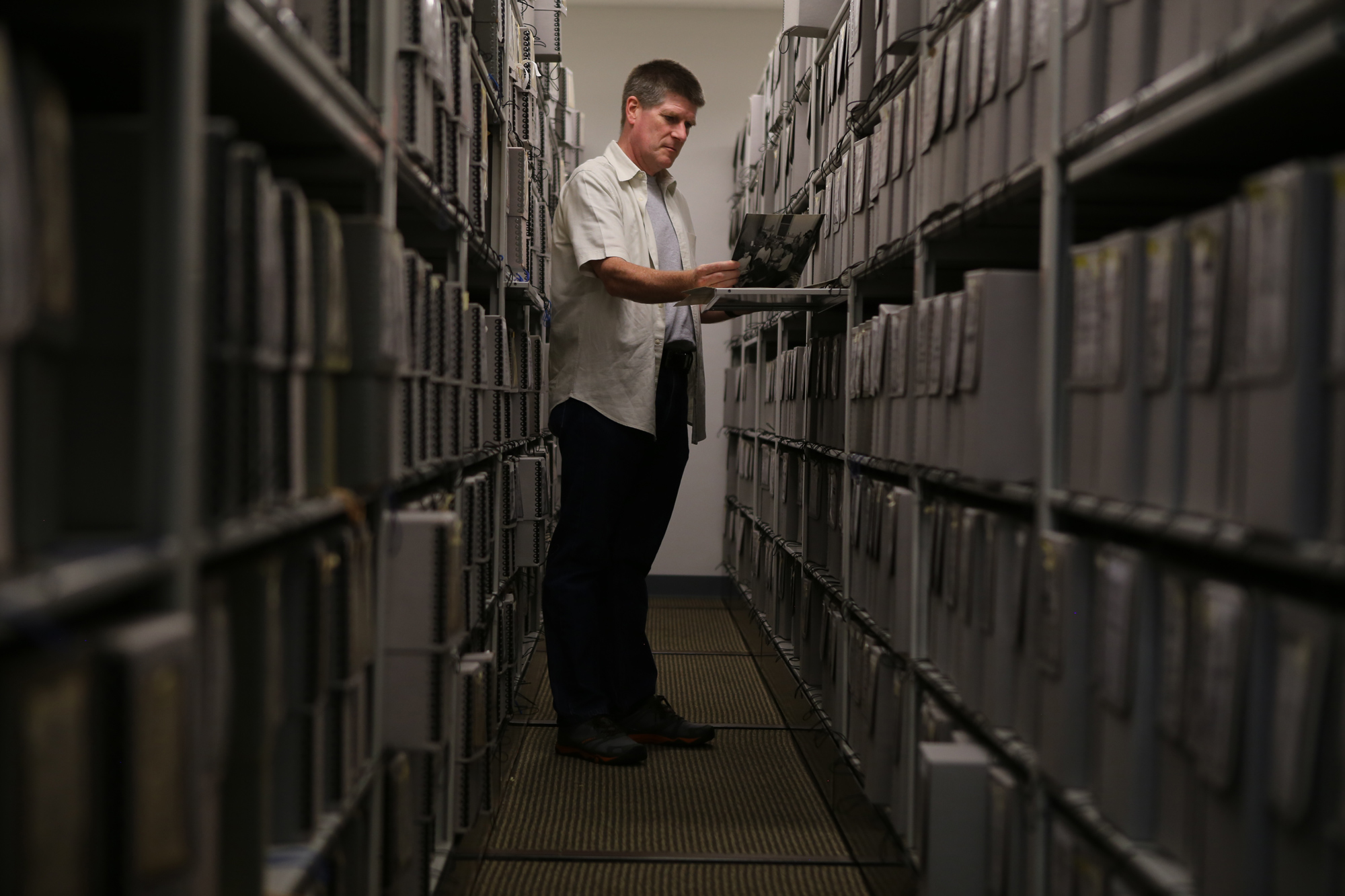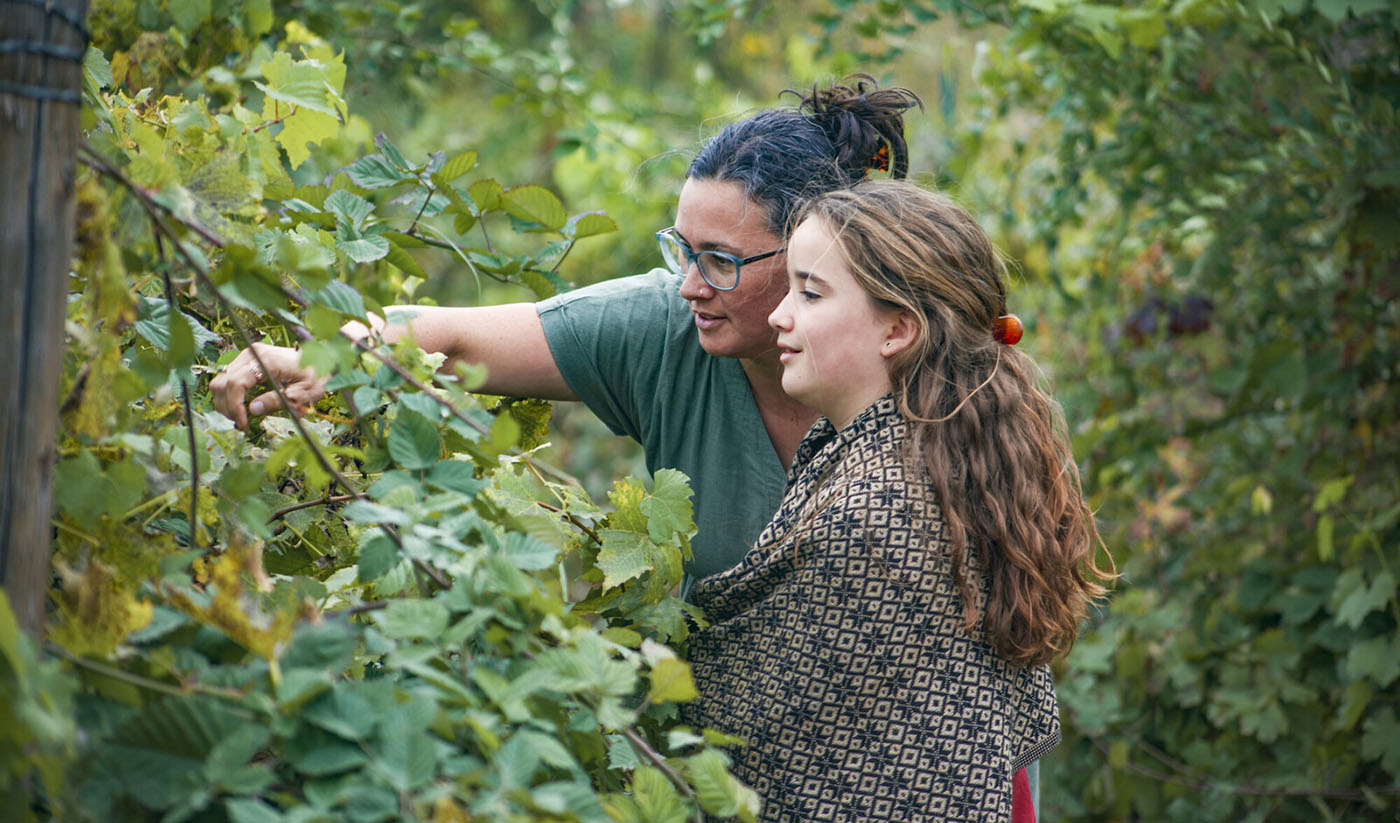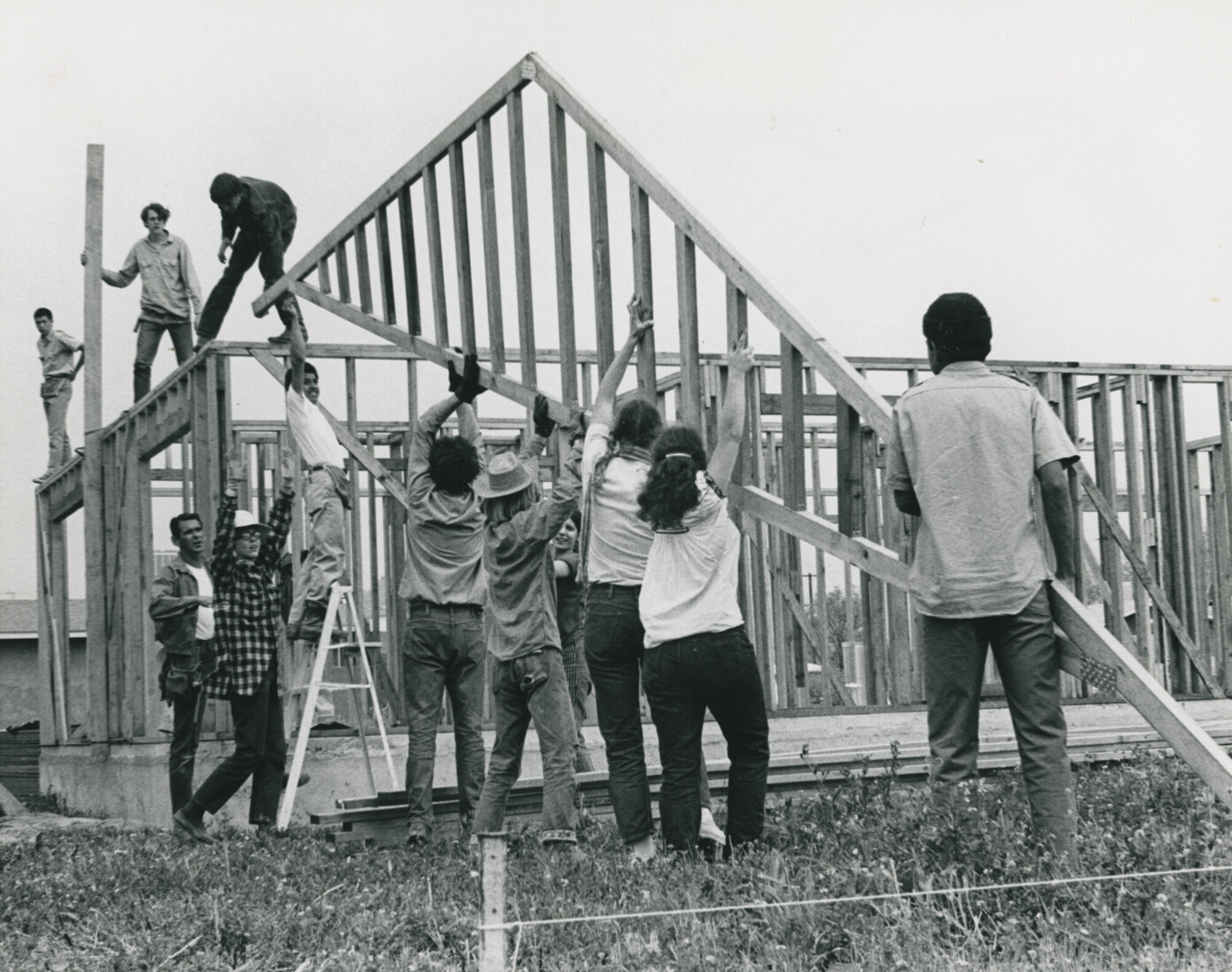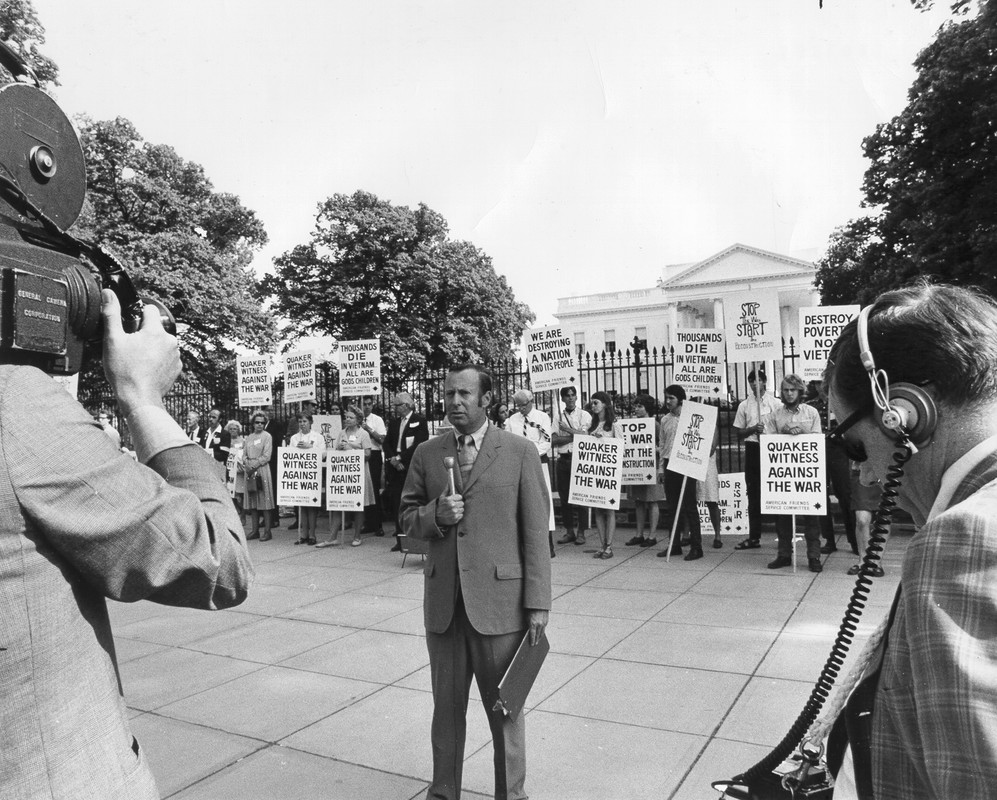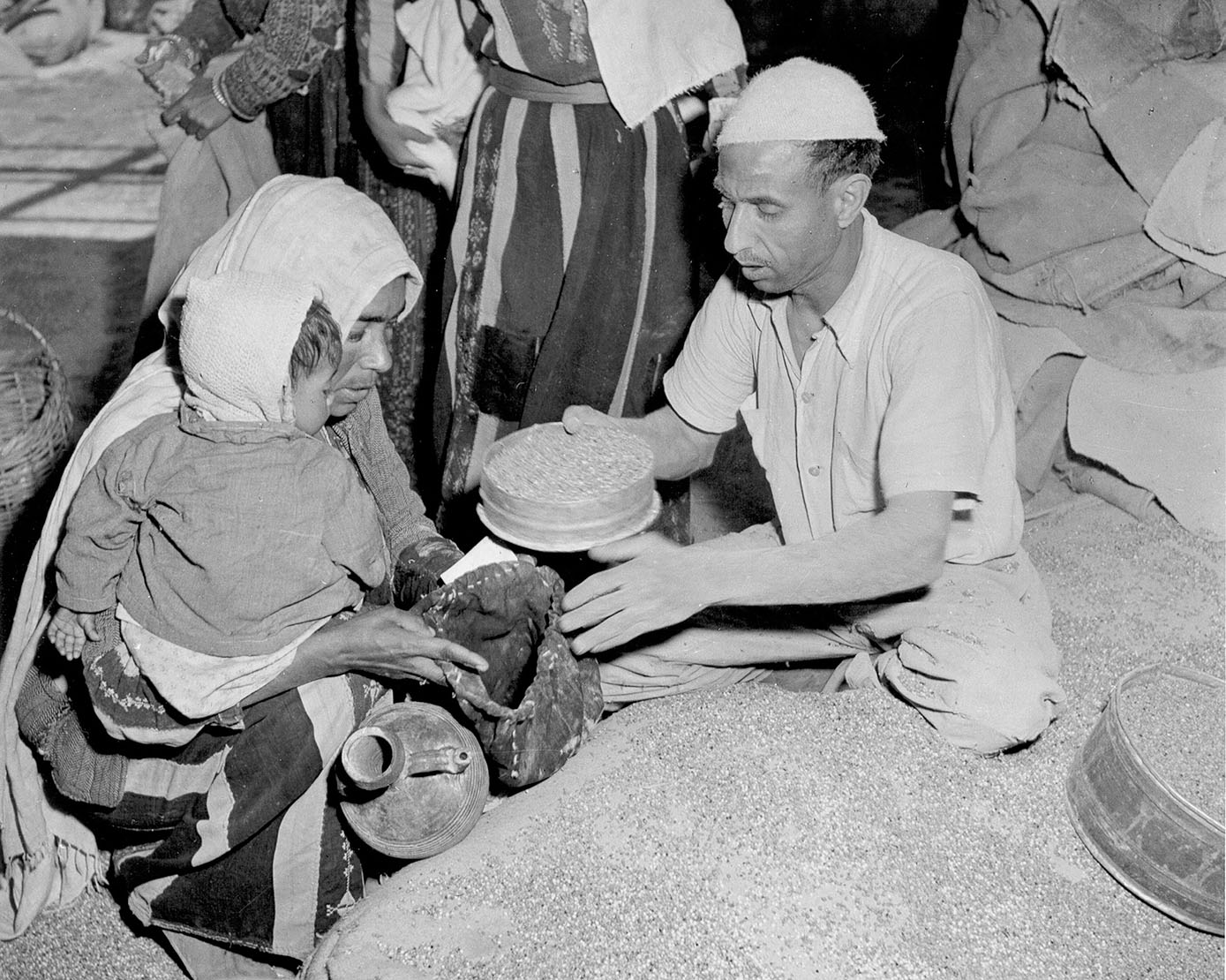History
Founded by Quakers in 1917, AFSC has been at the forefront of some of the most important social movements in working for a more just, peaceful world. Explore some of the major events in our history over the past century.
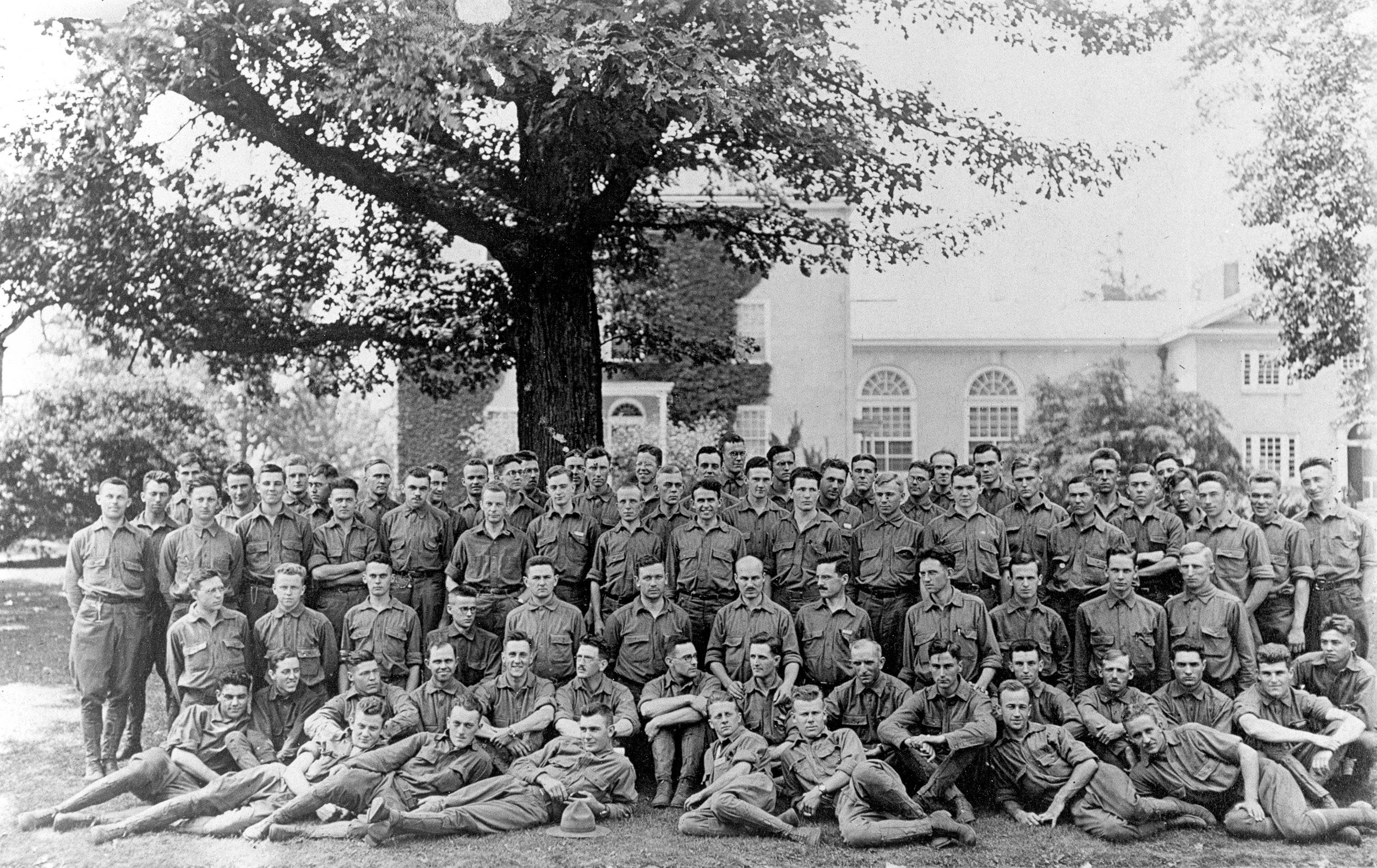
1917
The founding of AFSC
In 1917, a group of Quakers in Philadelphia founded AFSC in response to an urgent need for conscientious objectors to find alternatives to military service during World War I.
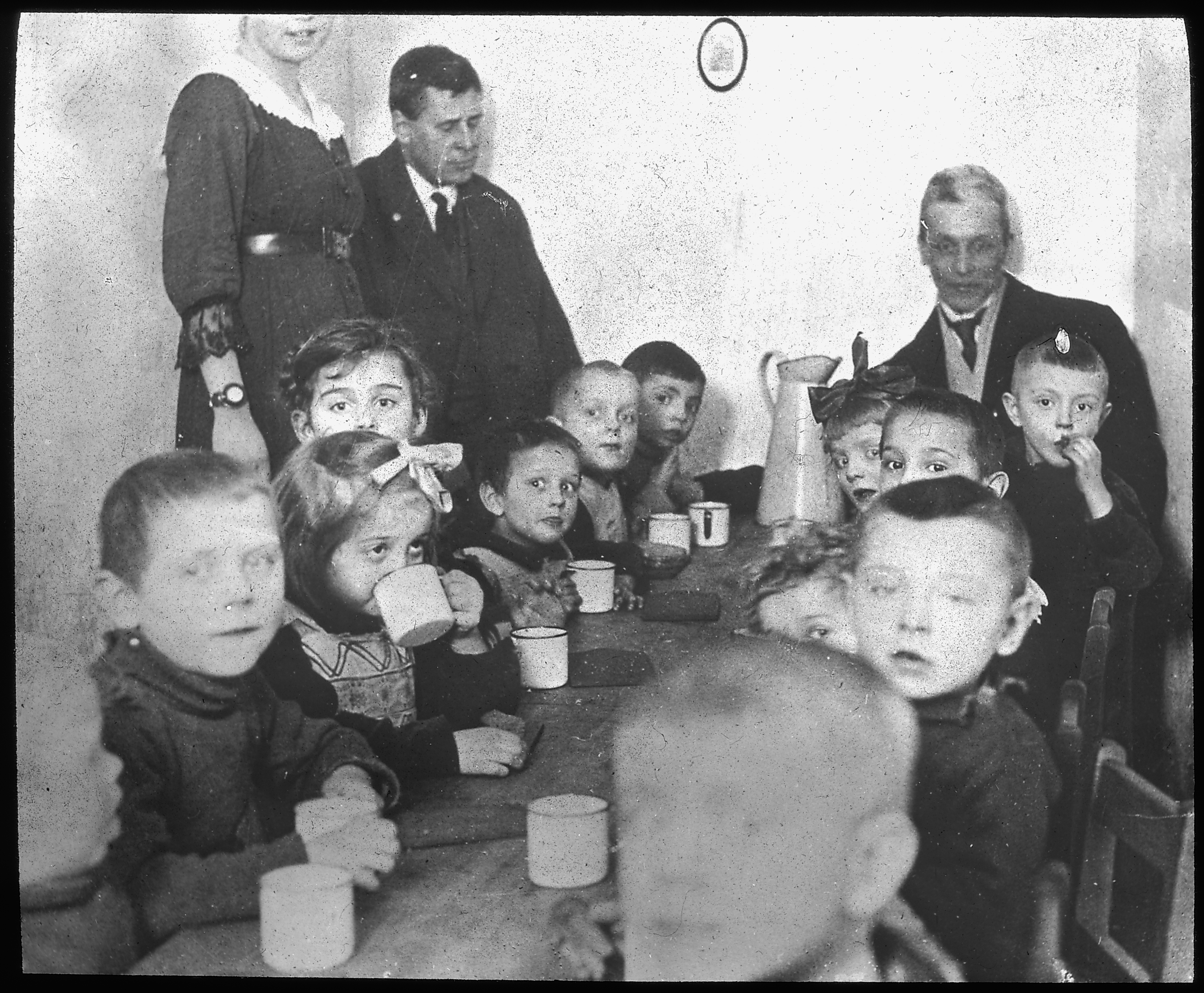
1919
Feeding children after World War I
AFSC created a program to feed thousands of children in Austria, Germany, and Poland. In the postwar era, AFSC was willing to do what others would not—to house, feed, and train people scorned as “enemies.”
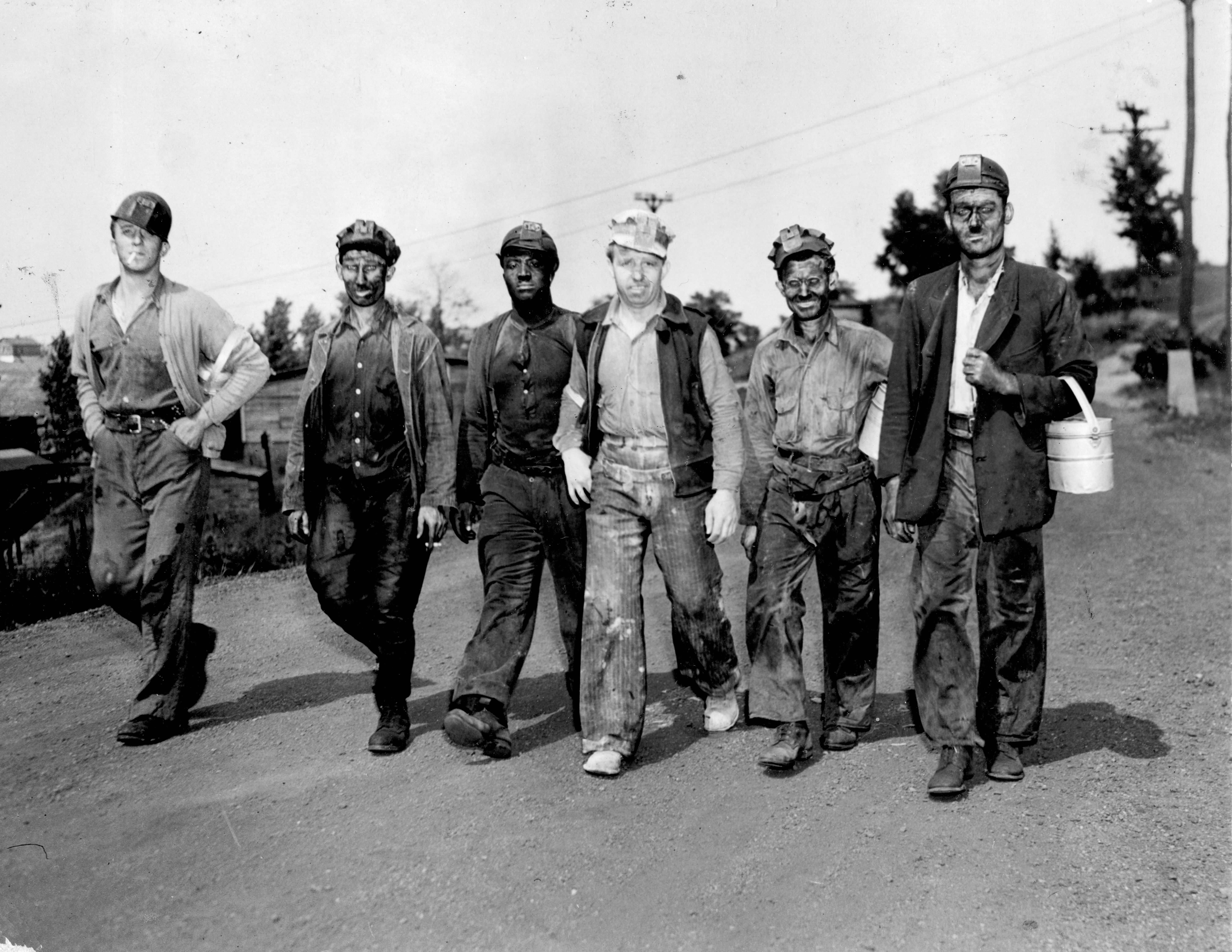
1922
Supporting West Virginia coalminers
AFSC established a feeding program that would help thousands of Appalachian coal miners and their families as the need grew in the years ahead. This work moved AFSC to focus more on domestic issues and economic justice.
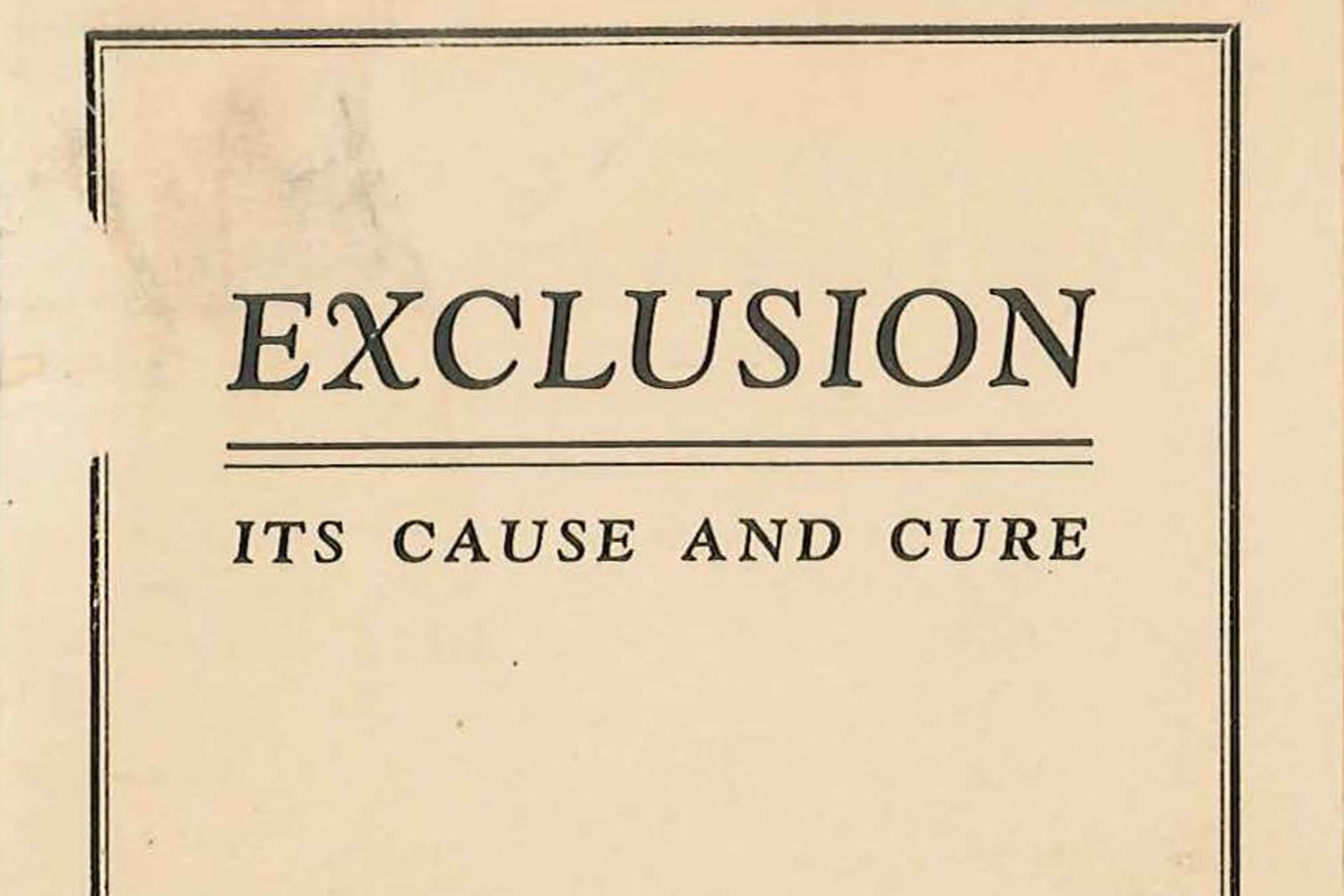
1924
Opposing xenophobia
AFSC spoke out against the racist U.S. Immigration Act of 1924, which barred immigration from Japan. Our publication “Exclusion: Its Cause and Cure” outlined the roots of racism and noted the contributions that Japanese Americans had made to the U.S. economy.
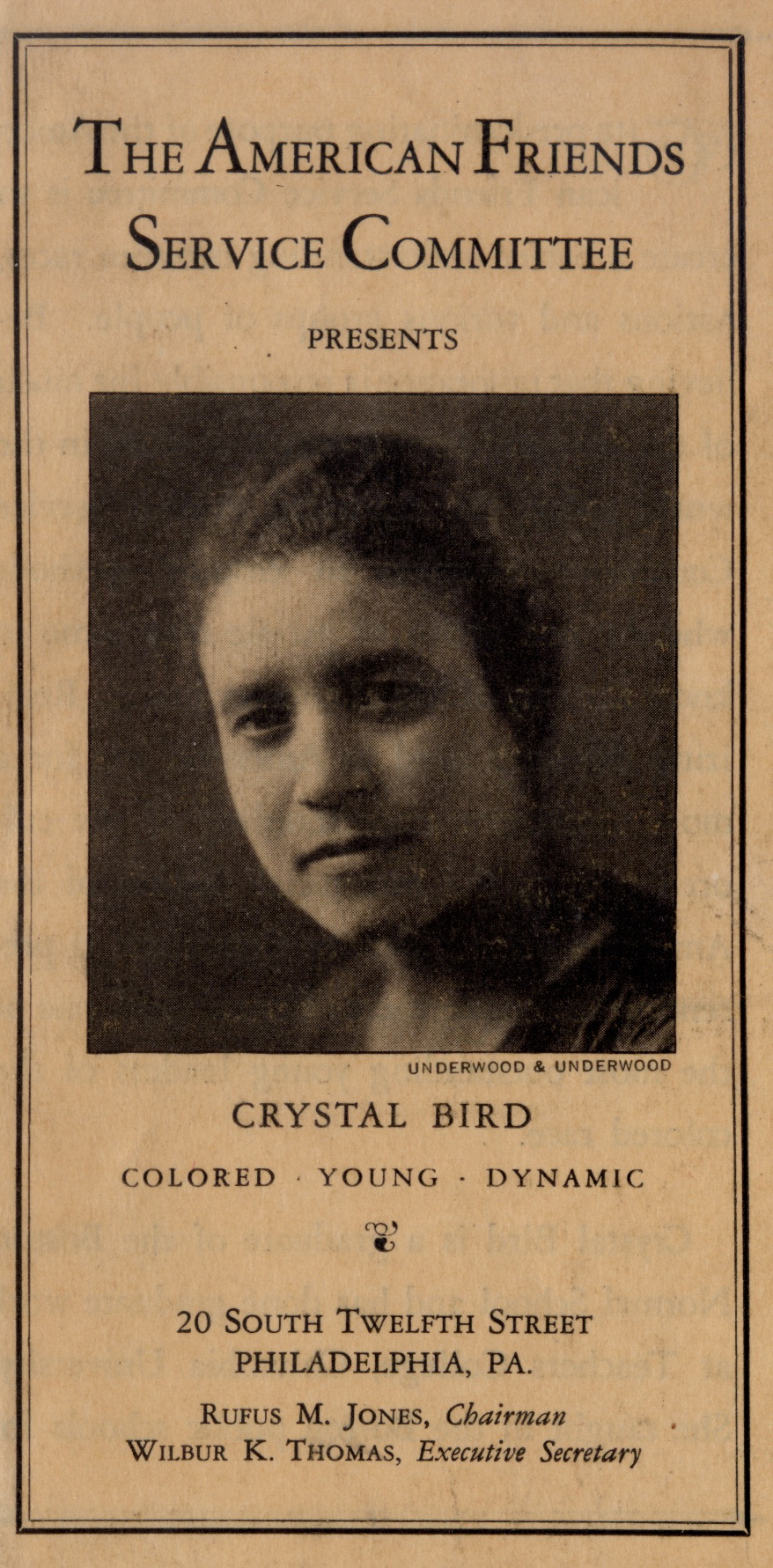
1927
Race relations in the U.S.
AFSC hired Crystal Bird, a young Black woman, to speak around the U.S. on racial equality. This effort to bridge the racial divide preceded decades of work to stop lynching, integrate public schools, and foster equity in jobs and housing
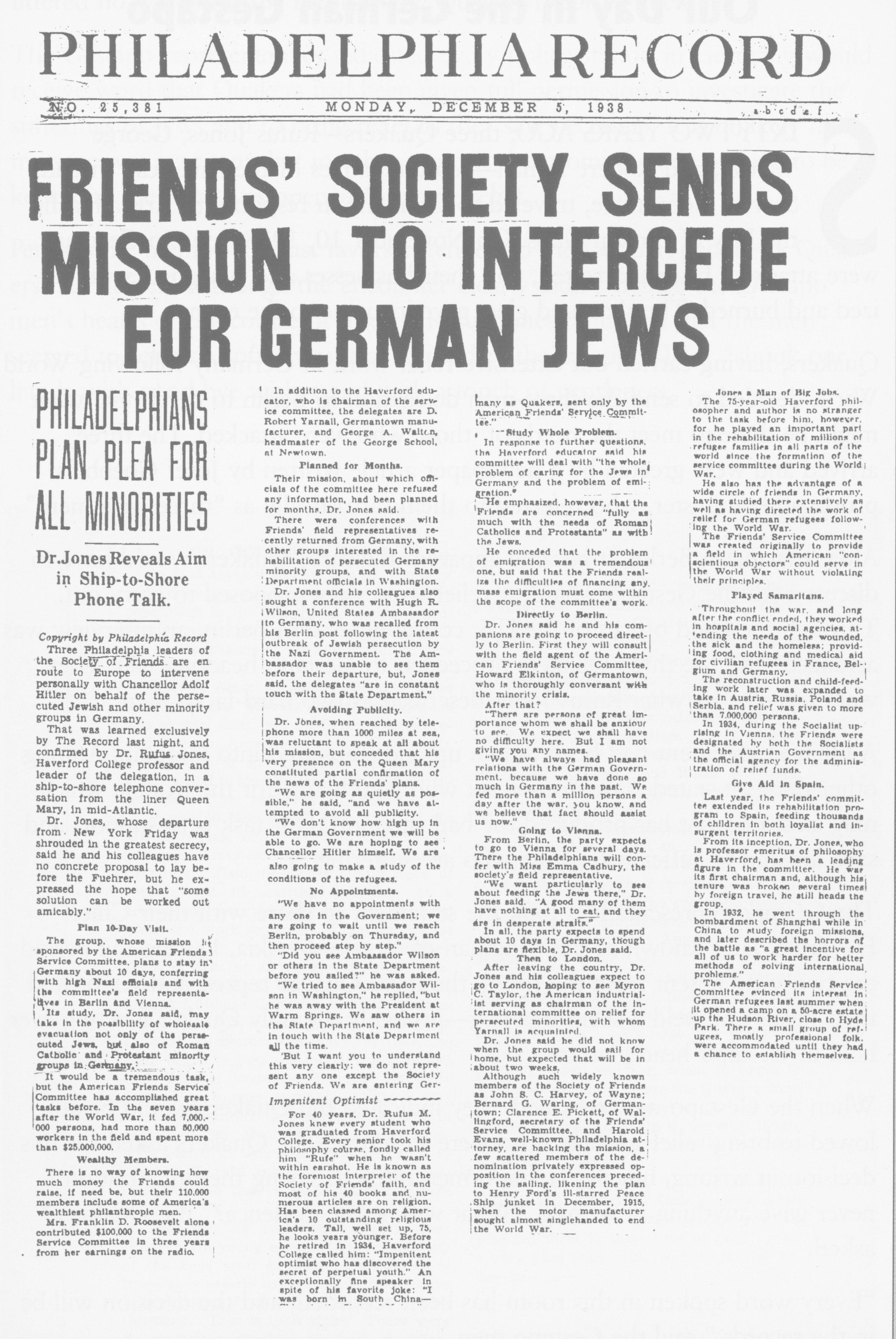
Learn more about our work with immigrants & refugees.
1934
Assisting Jewish refugees
In the years prior to and during World War II, AFSC secured the release of persecuted Jews throughout Europe. Our efforts helped more than 20,000 individuals and families—including thousands of children—make their way to safety.
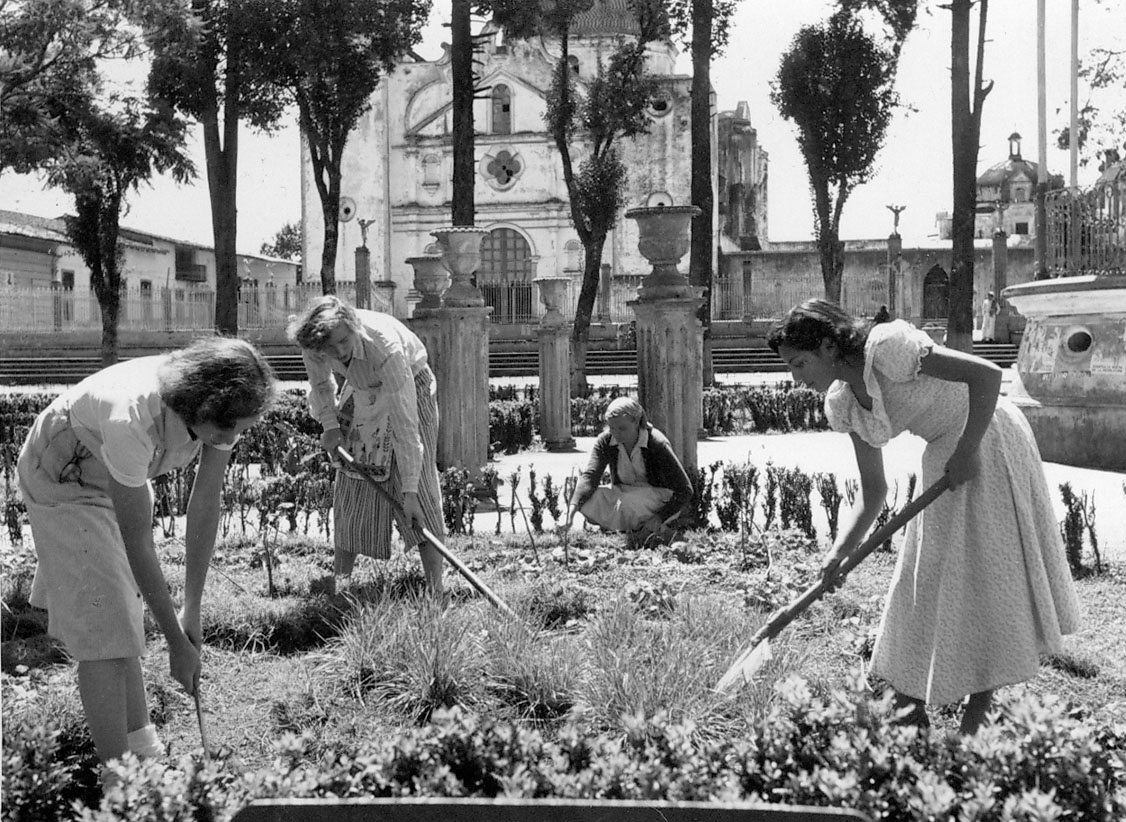
1934
Volunteer opportunities for youth
After World War I, AFSC engaged young people in voluntary service projects to rebuild what war destroyed. In the following decades, we coordinated volunteer work camps to support communities worldwide through work camps and international service programs.
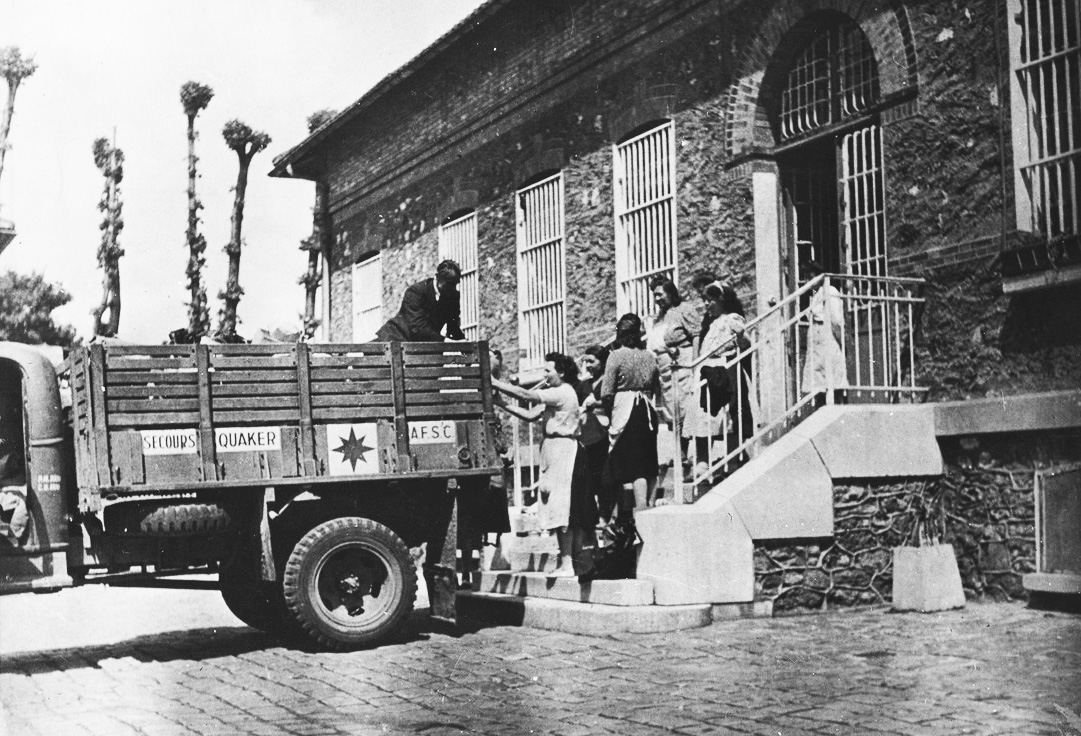
1937
Humanitarian relief during wartime
Beginning with the Spanish Civil War and continuing throughout World War II, AFSC set up milk stations and fed tens of thousands of people at orphanages, prisons, refugee camps, and homes for the elderly.
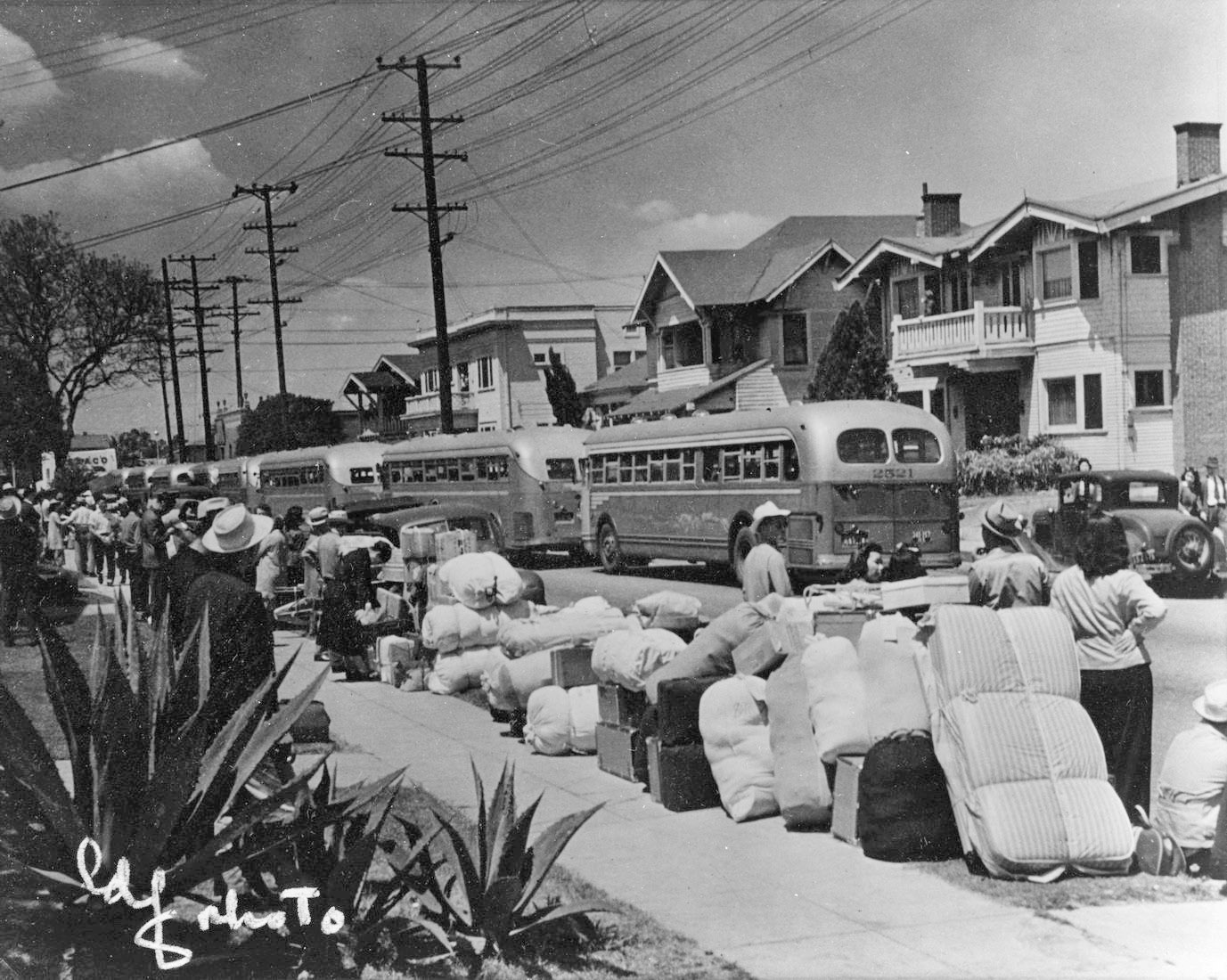
1942
Standing against Japanese internment
AFSC was one of the few U.S. organizations to oppose the internment of Japanese Americans—while visiting and providing aid to people interned. We established two programs to get people out of camps, eventually securing the release of more than 4,000 individuals.
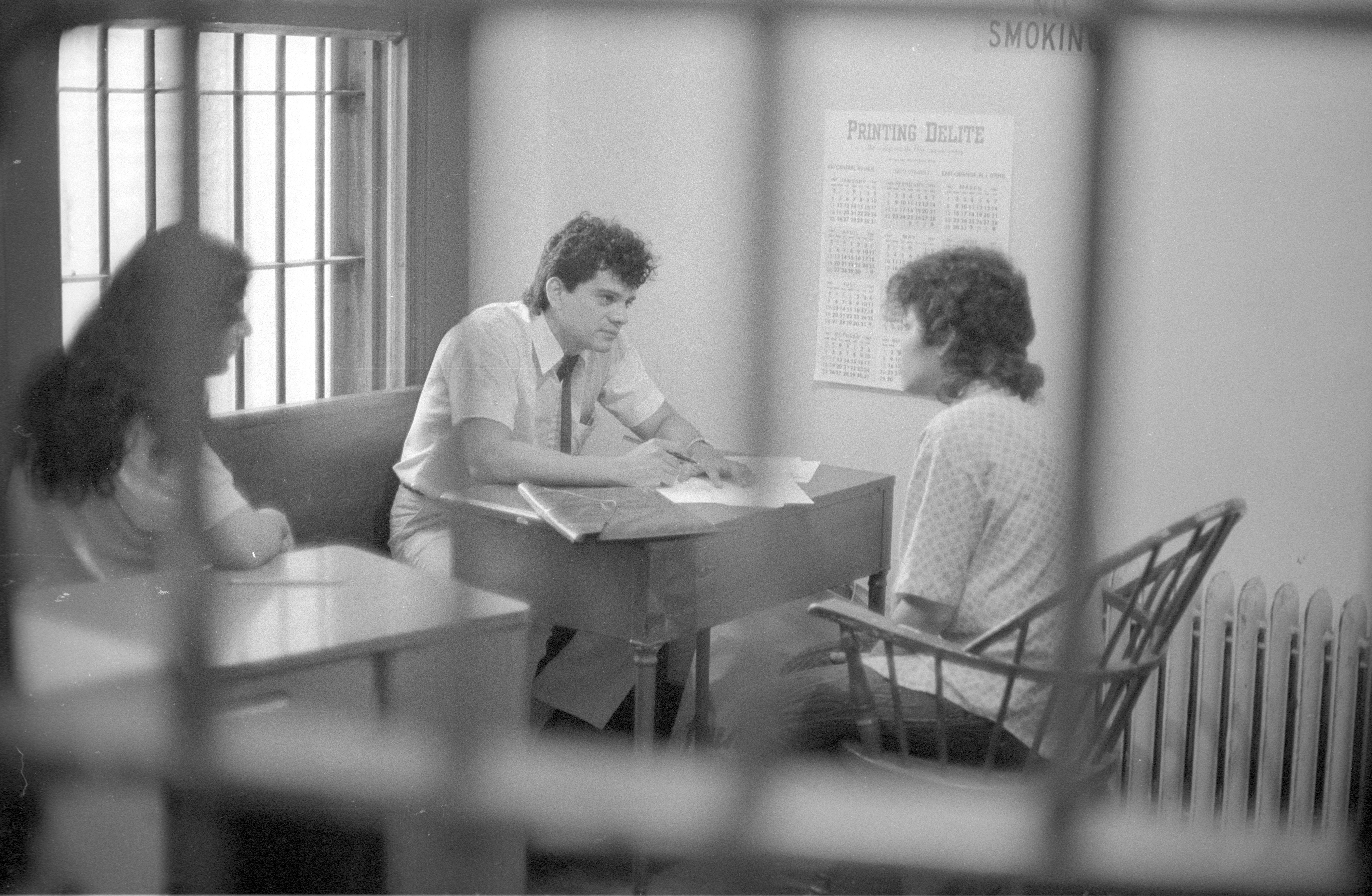
1944
Support for incarcerated people
AFSC operated halfway houses and pre-trial programs for incarcerated people who couldn’t afford bail, seeing firsthand how the criminal justice system inflicted disproportionate harm on the poor and people of color.
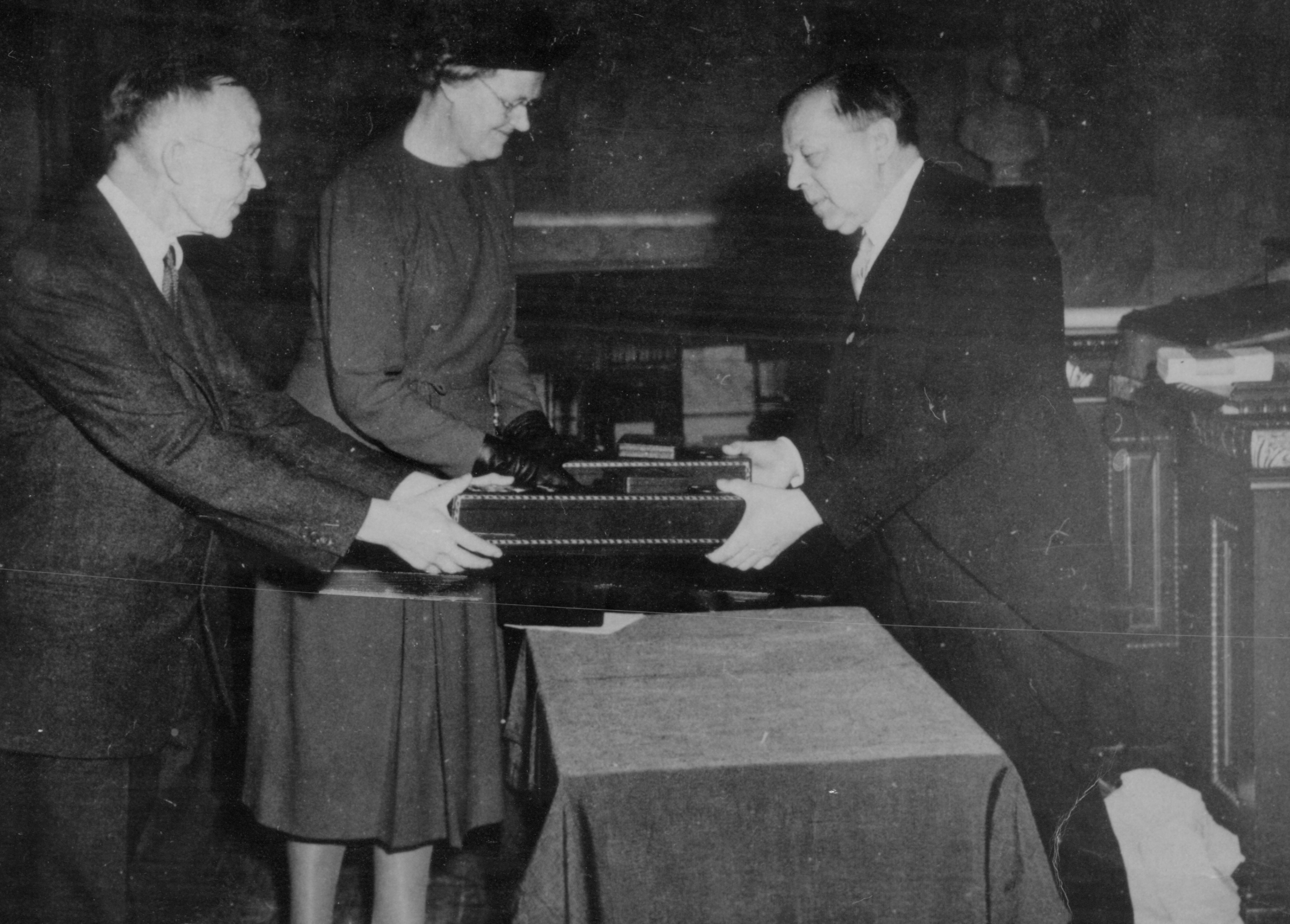
1947
Nobel Peace Prize
The Nobel Peace Prize was jointly awarded to AFSC and the British Friends Service Council, in recognition of the work of all Quakers worldwide to heal rifts, tend to the wounded, and oppose war.
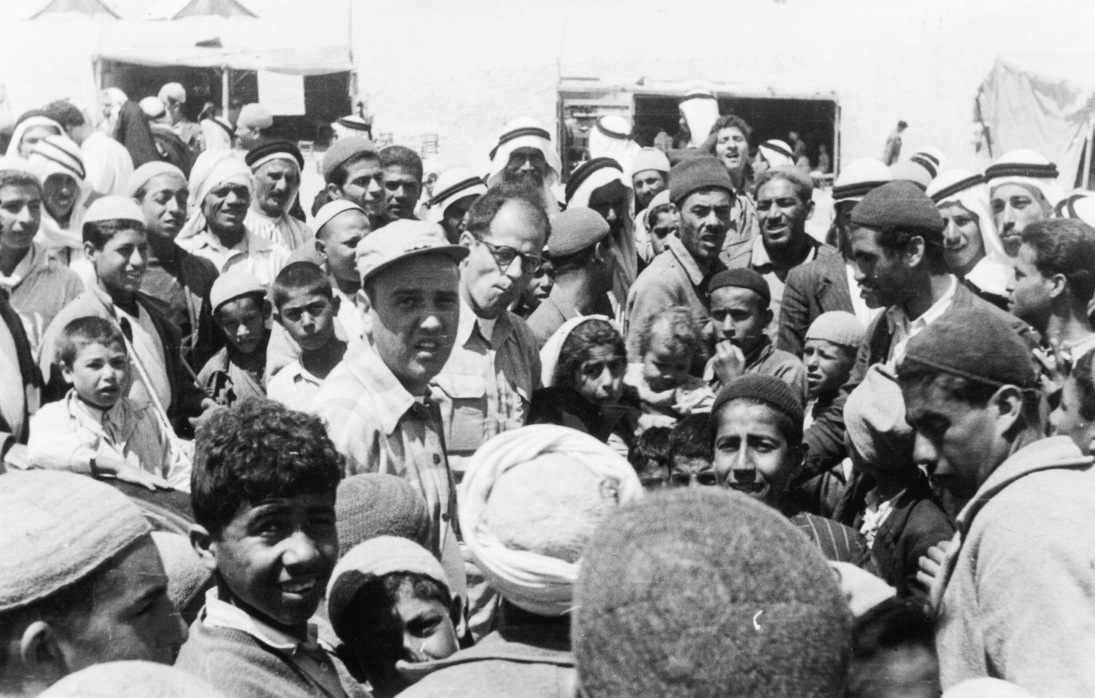
Learn more about AFSC's work Peacebuilding in Palestine.
1948
The start of AFSC’s work in Gaza
In response to a United Nations request, AFSC led relief for refugees in Gaza. We set up clinics in refugee camps, supported local hospitals, and started a midwifery program to train dozens of women.
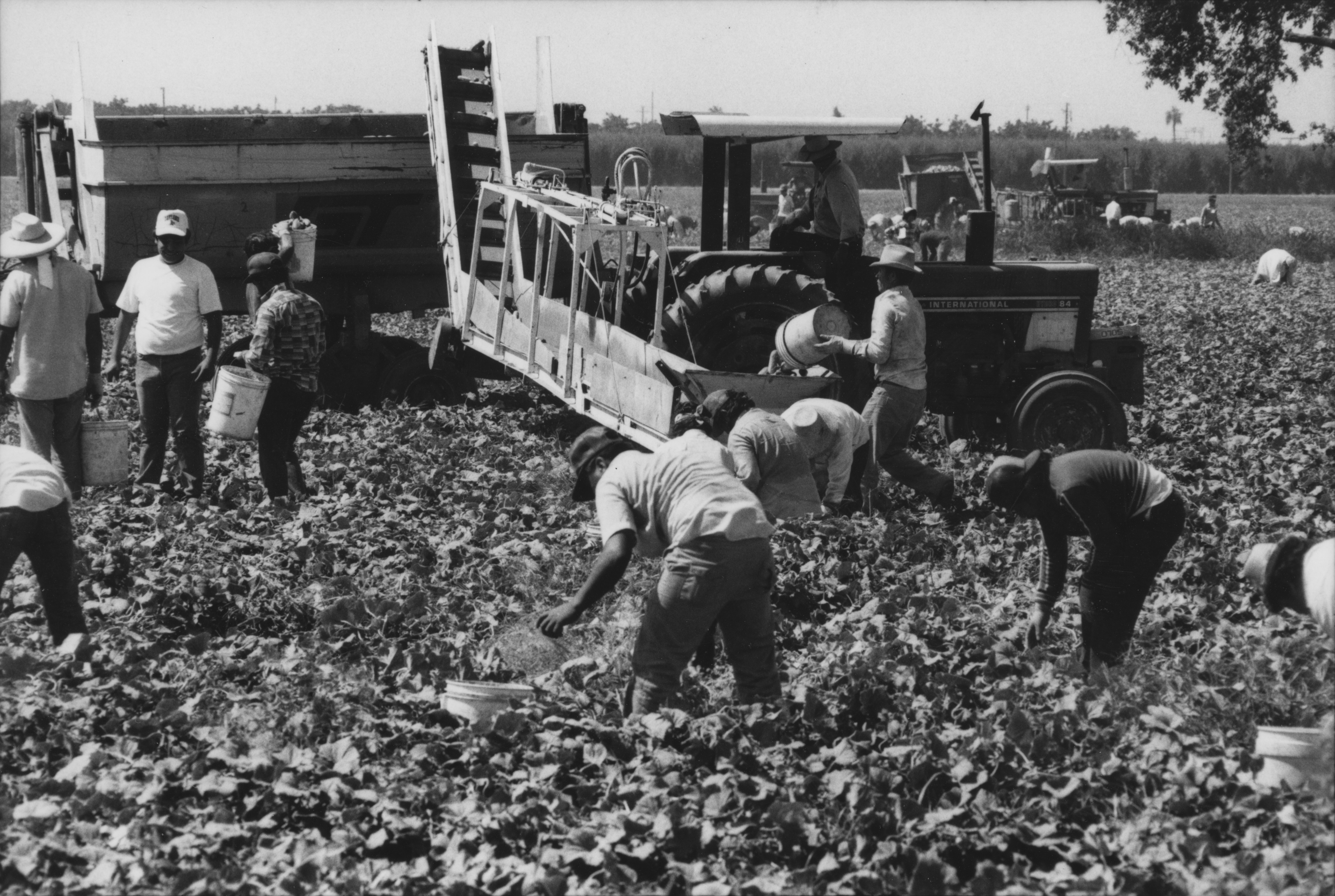
1953
Organizing with farmworkers
AFSC’s partnership with migrant farmworkers began with the demand to eliminate tin-shack housing and improve basic services. Later, AFSC helped create the United Farm Workers, providing meeting places, collecting funds for strikers, and paying the chief union negotiator’s salary.
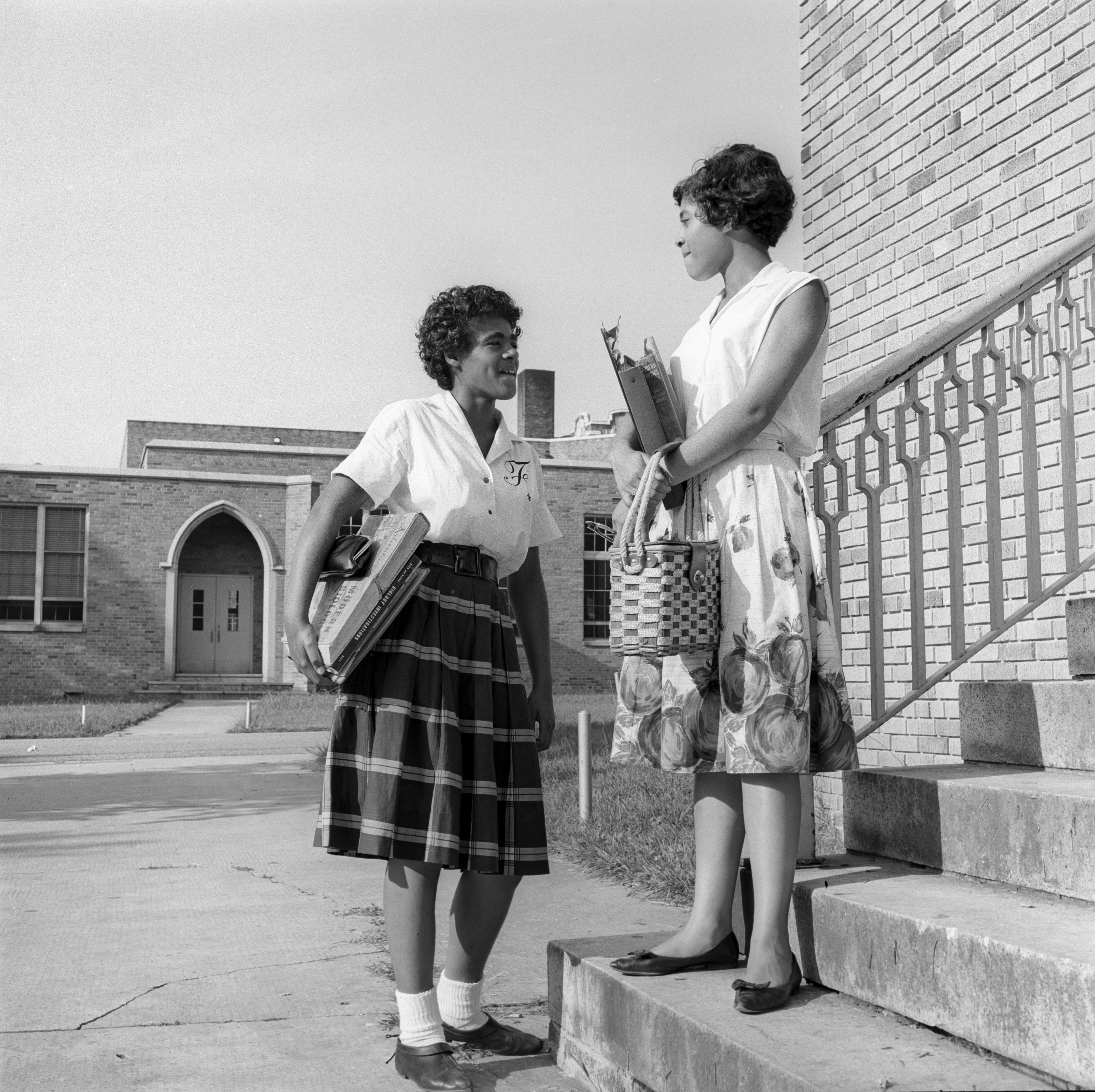
1954
Desegregating schools
Following the Brown decision, AFSC helped Black families enroll their children in formerly white-only schools. In Prince Edward County, Virginia, where the school board closed their schools rather than integrate, we placed dozens of Black students in Northern schools.
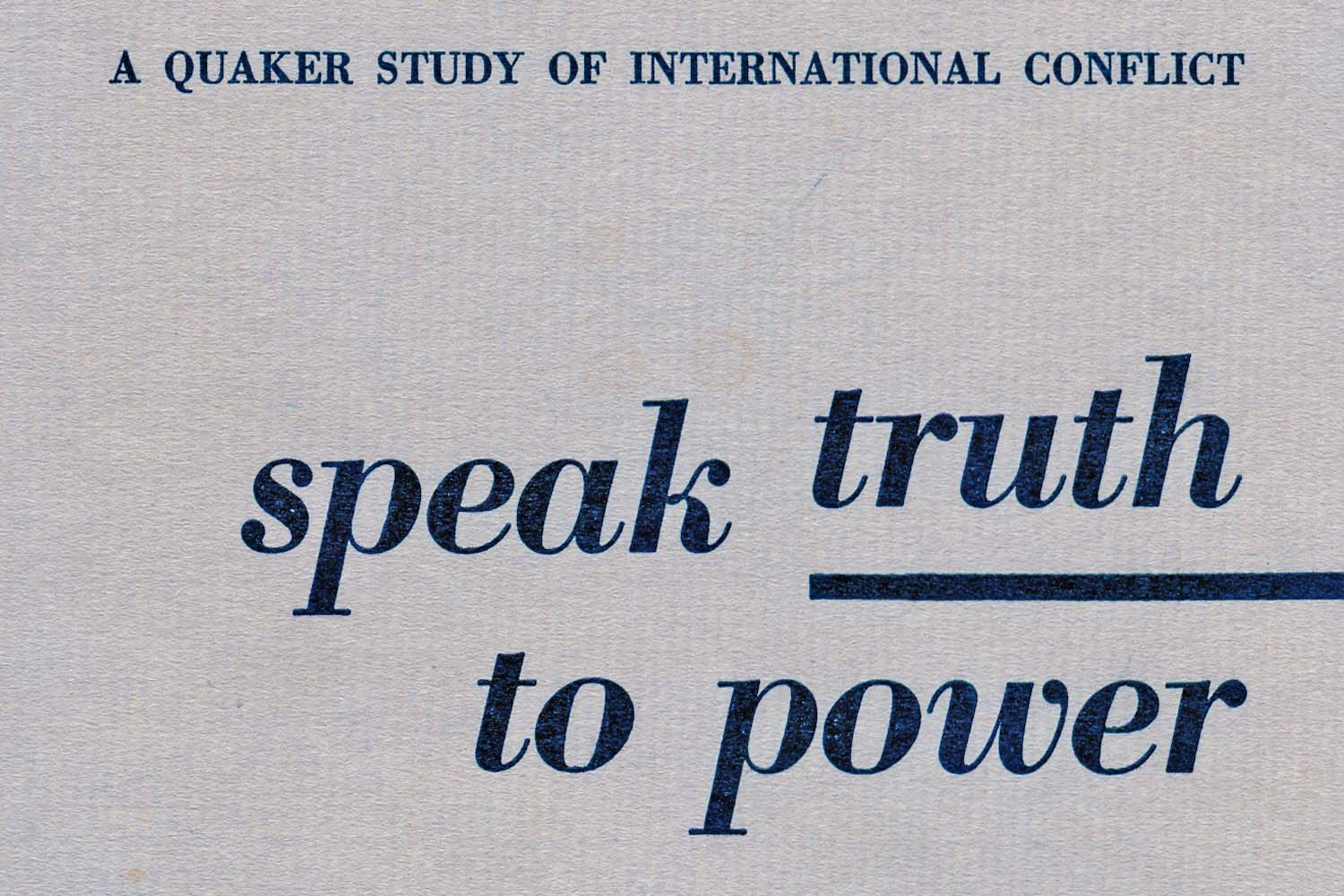
1955
Speaking truth to power
AFSC published “Speak Truth to Power: A Quaker Search for an Alternative to Violence,” which called for peaceful solutions to end the Cold War.
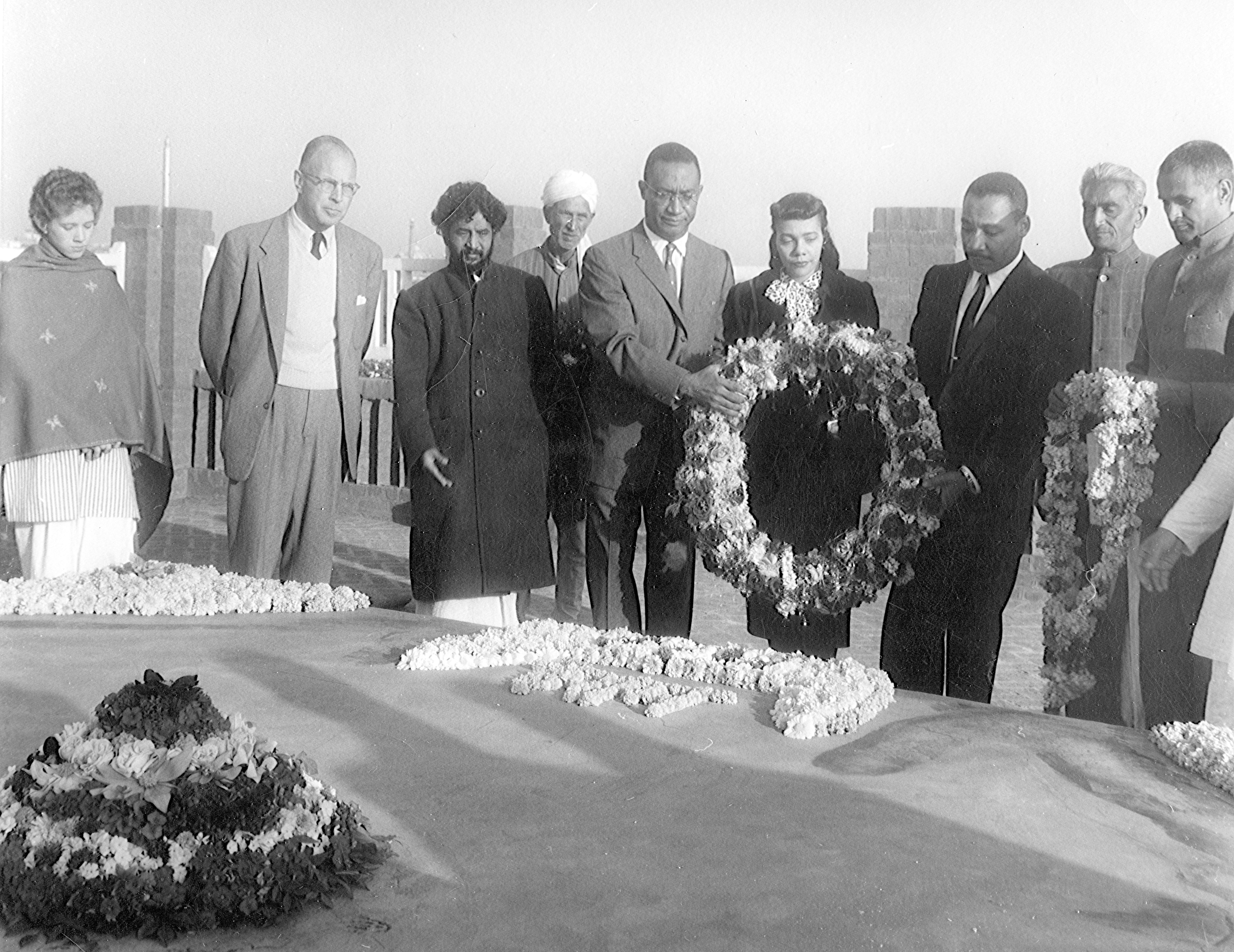
1959
Dr. King in India
AFSC sponsored Rev. Dr. Martin Luther King, Jr., and Coretta Scott King’s visit to India. That connected them with Gandhi’s legacy, strengthening their commitment to nonviolent action. In 1963, AFSC would publish Dr. King’s “Letter from Birmingham City Jail.”
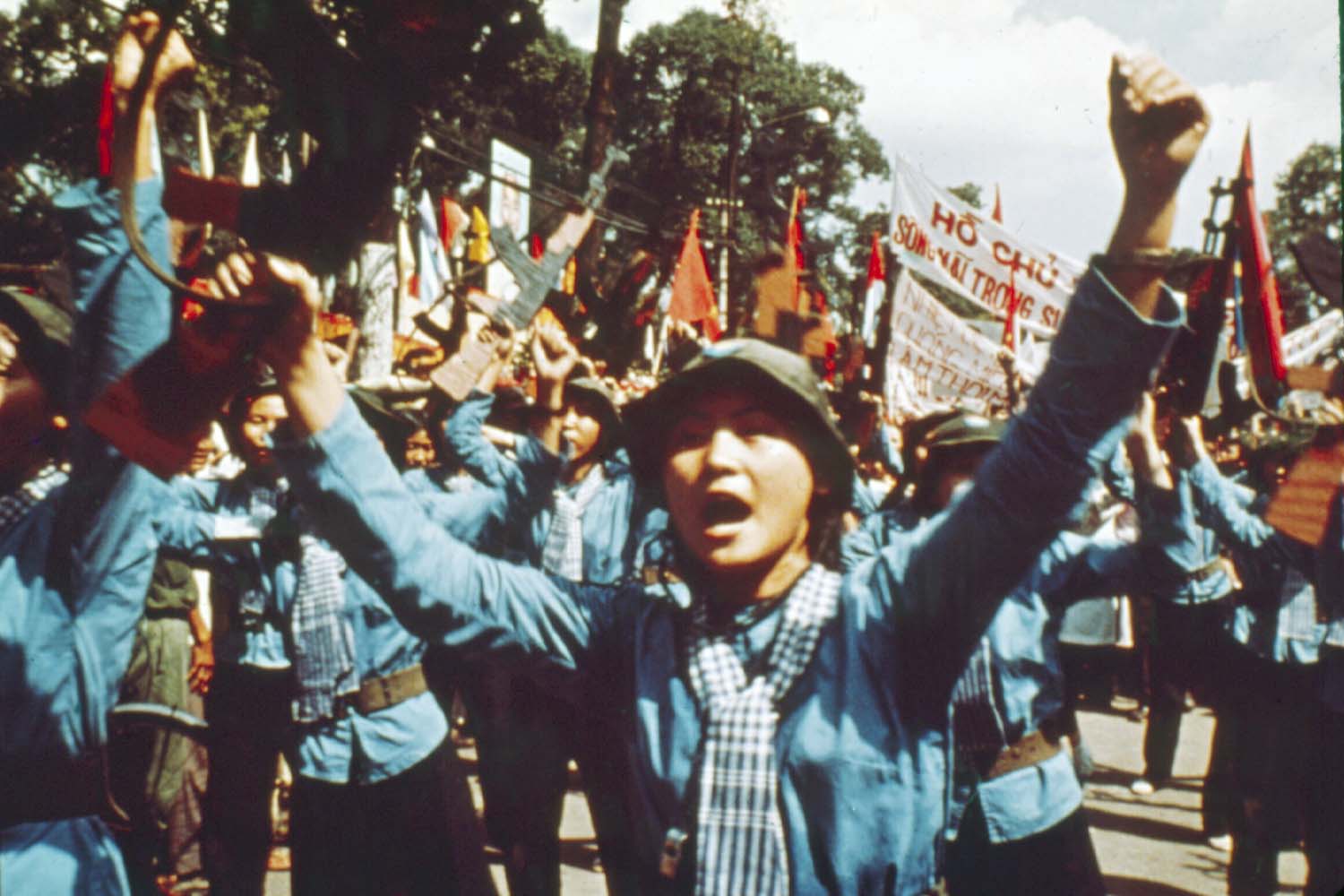
Learn more about AFSC's work Resisting the Vietnam War.
1964
Resisting the Vietnam War
AFSC was a vital part of the Vietnam-era peace movement. AFSC shared first-hand information from Vietnam to build support to end the war. AFSC provided medical aid to civilians in Vietnam and offered draft counseling to thousands in the U.S.
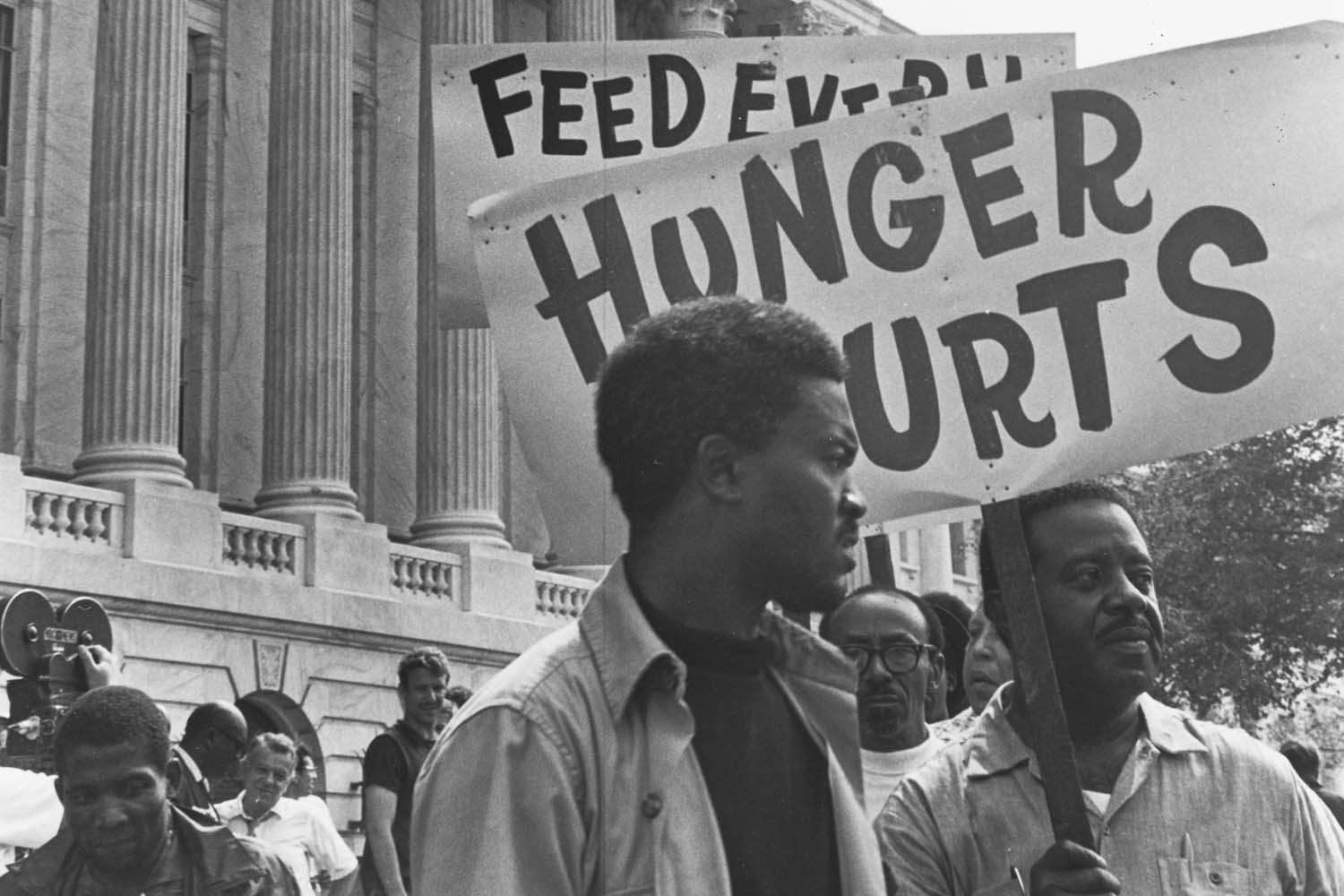
1968
Poor People’s Campaign
AFSC played a prominent role in the Poor People’s Campaign, raising issues of economic and racial equality.
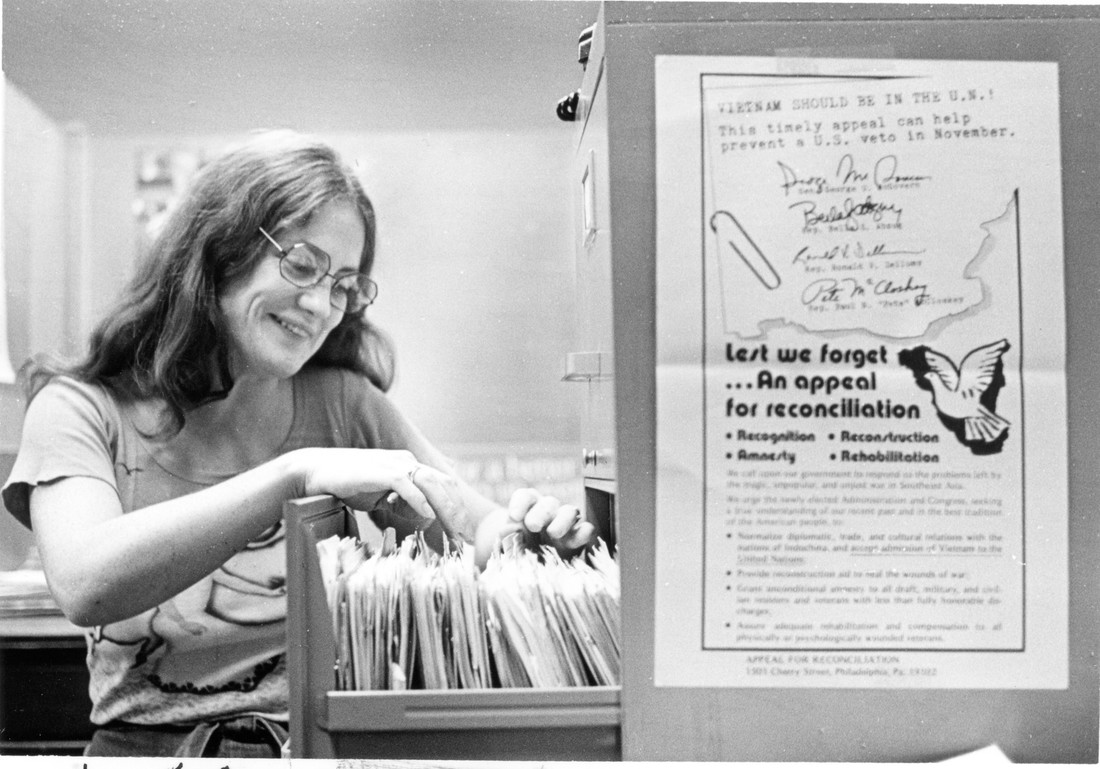
1969
Exposing the Military Industrial Complex
AFSC researchers formed NARMIC (National Action/Research on the Military Industrial Complex). They researched military industries and civilian companies complicit in the Vietnam War and in South African apartheid—and created books, fliers, and presentations for activist campaigns nationwide.
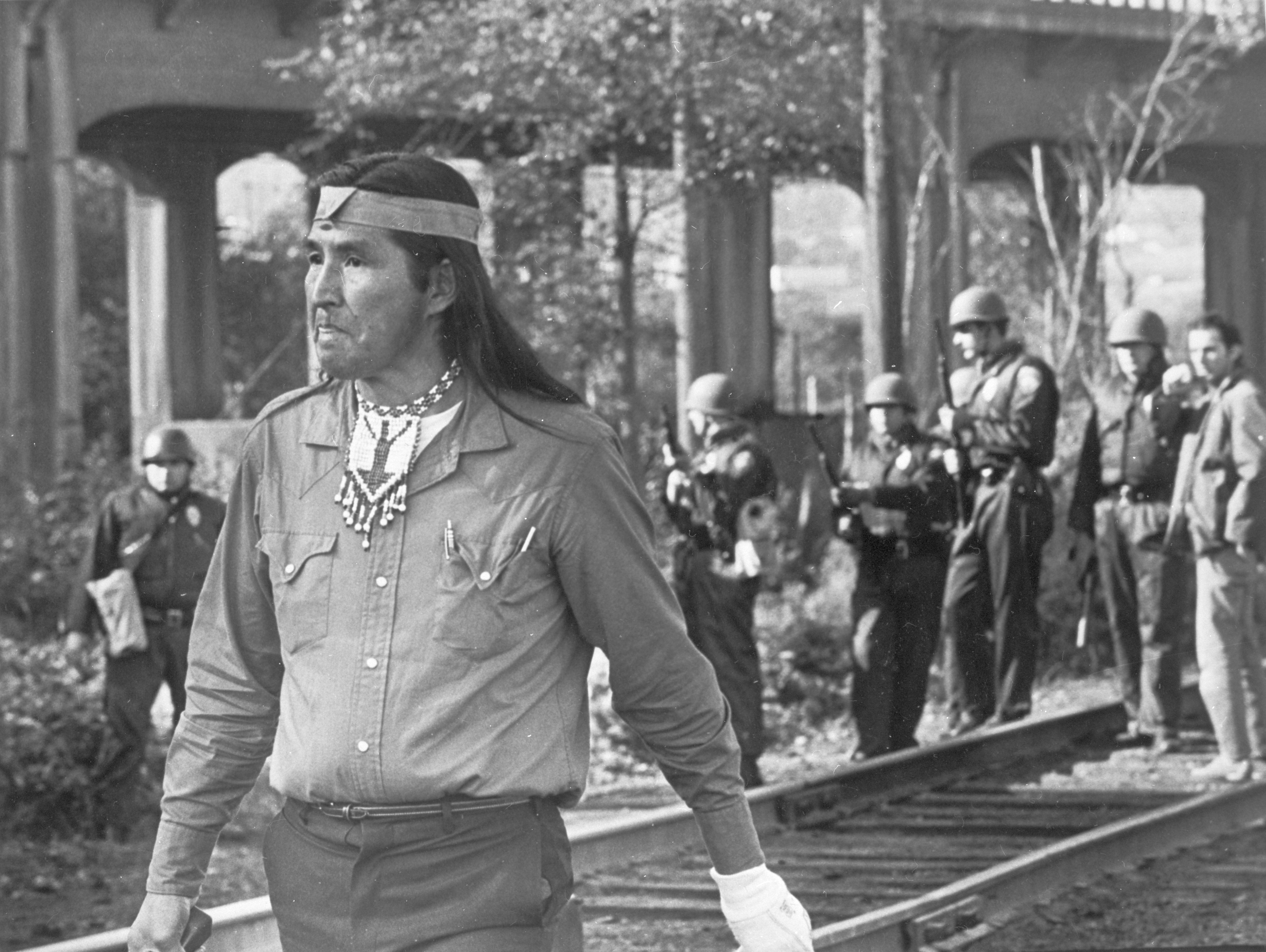
1970
Standing with Indigenous people
As Indigenous people organized for self-determination, AFSC has stood with them. From the Pacific Northwest to the Plains to Maine, we partnered with tribes and nations in advocating for recognition of fishing rights, land claims, and several other issues.
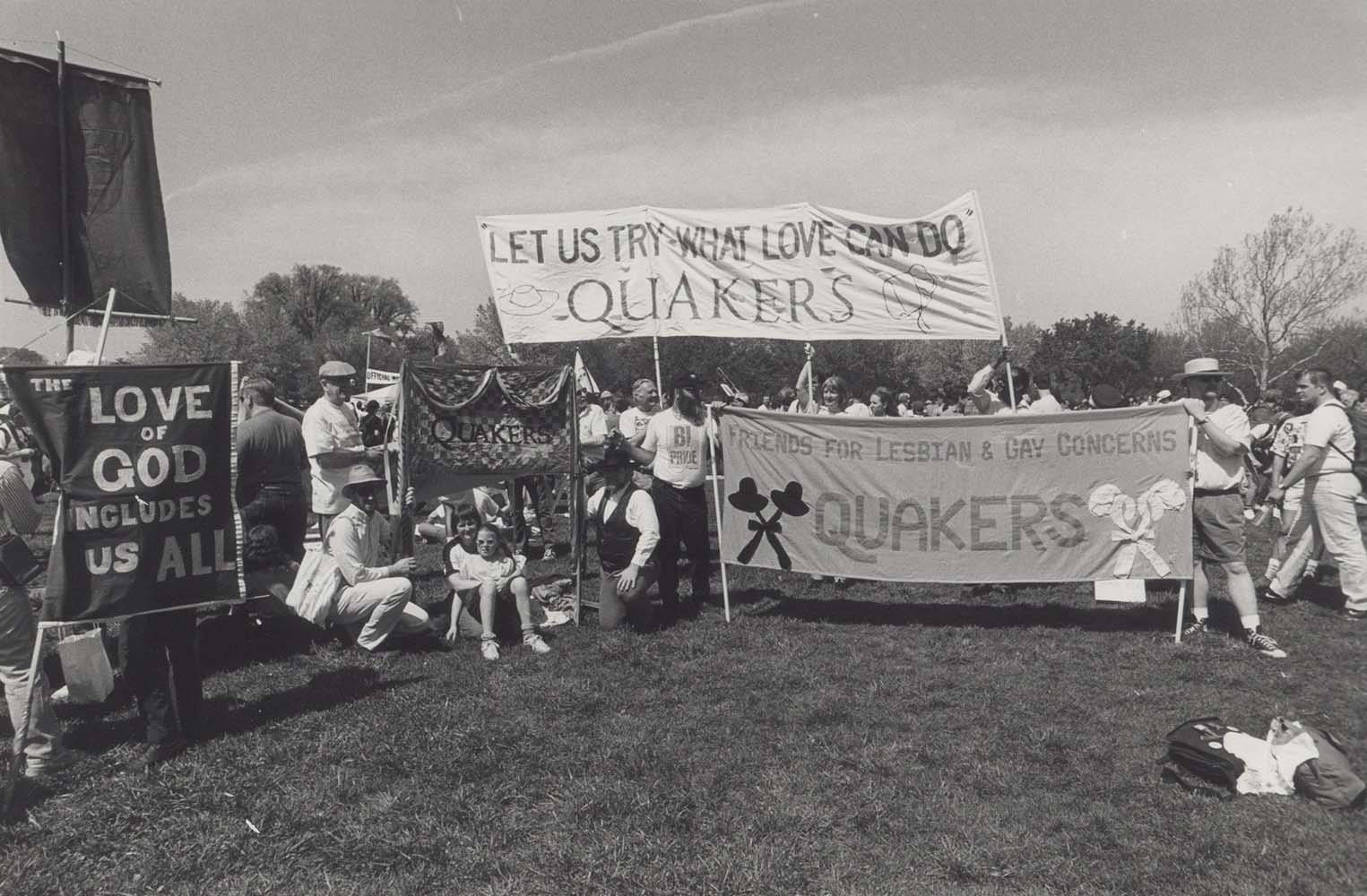
1975
LGBTQ rights and recognition
In 1975, AFSC established a Lesbian/Gay/Bisexual Rights Task Force. In 1986, AFSC created our first LGBTQ program in Seattle. In 1992 the office created the Bridges Project, an informational clearinghouse for LGBTQ youth and the organizations that served them.
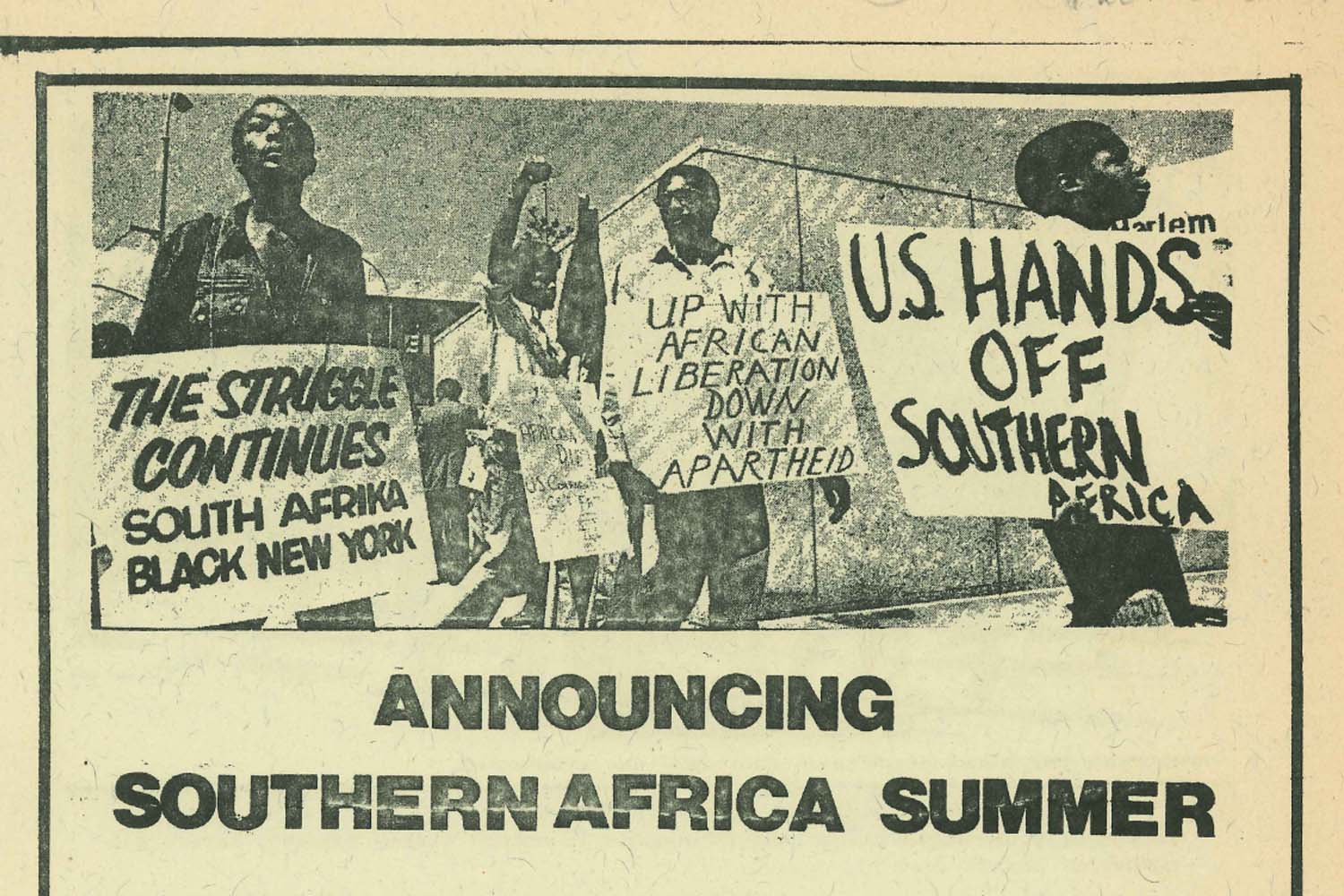
1978
Ending apartheid
AFSC launched a successful nationwide boycott of Coca-Cola. We brought organizing expertise to the cause, connecting D.C. policy groups, students, unions, churches, and municipalities. Ultimately, the campaign contributed to the downfall of apartheid in 1994.
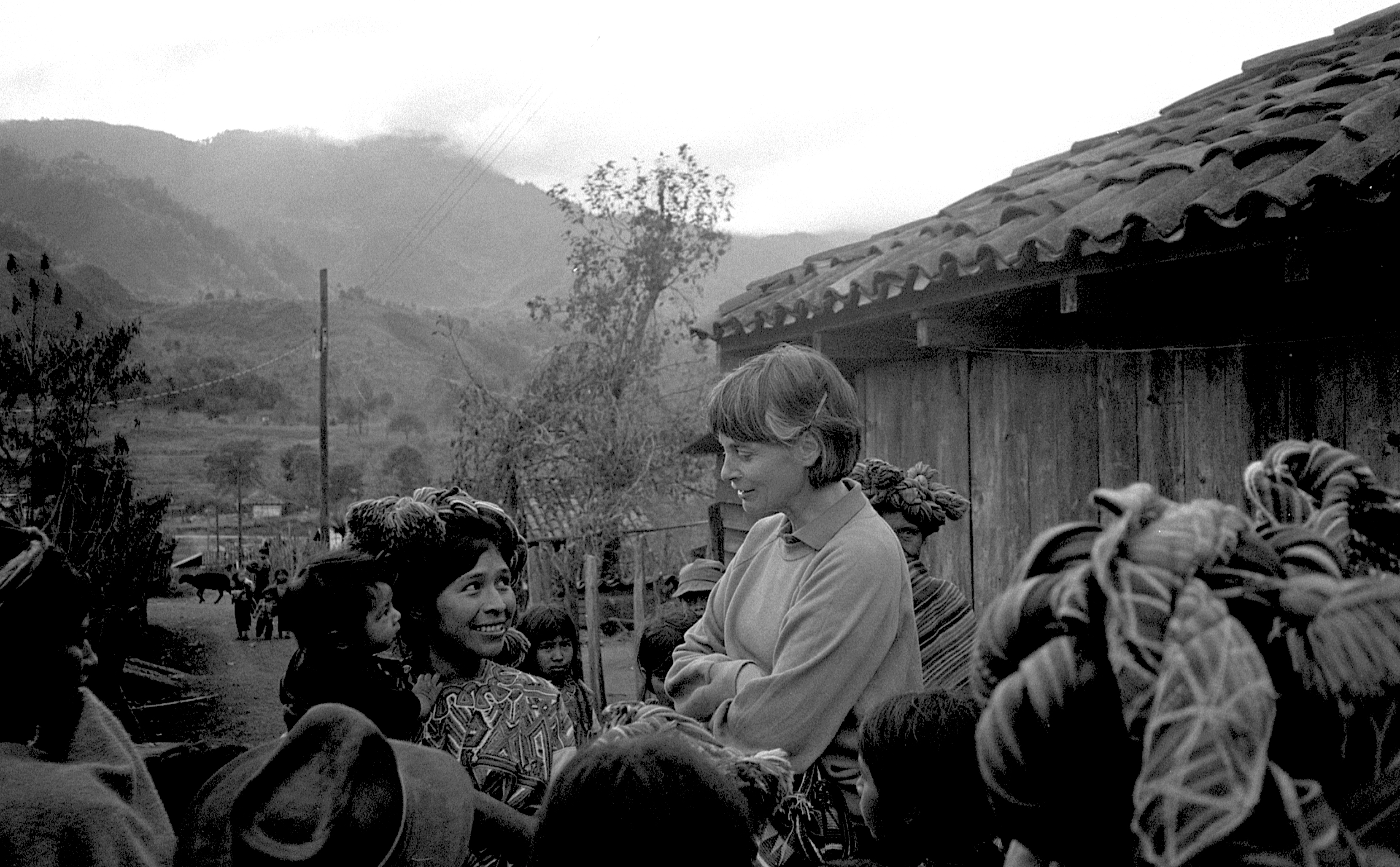
1978
Solidarity with Latin America
When popular movements rose up in Central America in the 1970s and ‘80s, governments responded with brutality. AFSC’s staff on the ground brought the brutality to light, along with U.S. involvement. We coordinated with U.S. faith communities offer refugees sanctuary.
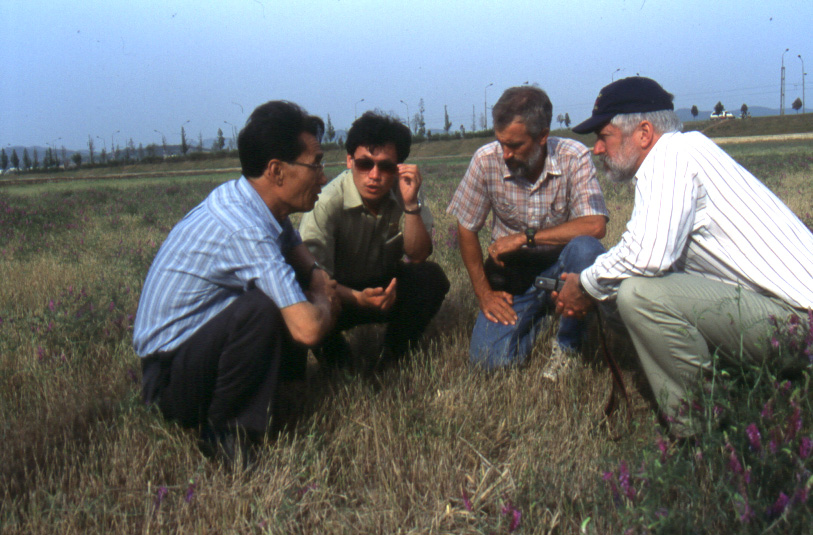
1980
Agricultural assistance in North Korea
In 1980, AFSC sent its first delegation to North Korea, and we have continued promoting peace between the U.S. and DPRK since. AFSC has helped Korean farmers increase food production, which has helped in a country facing food shortages.
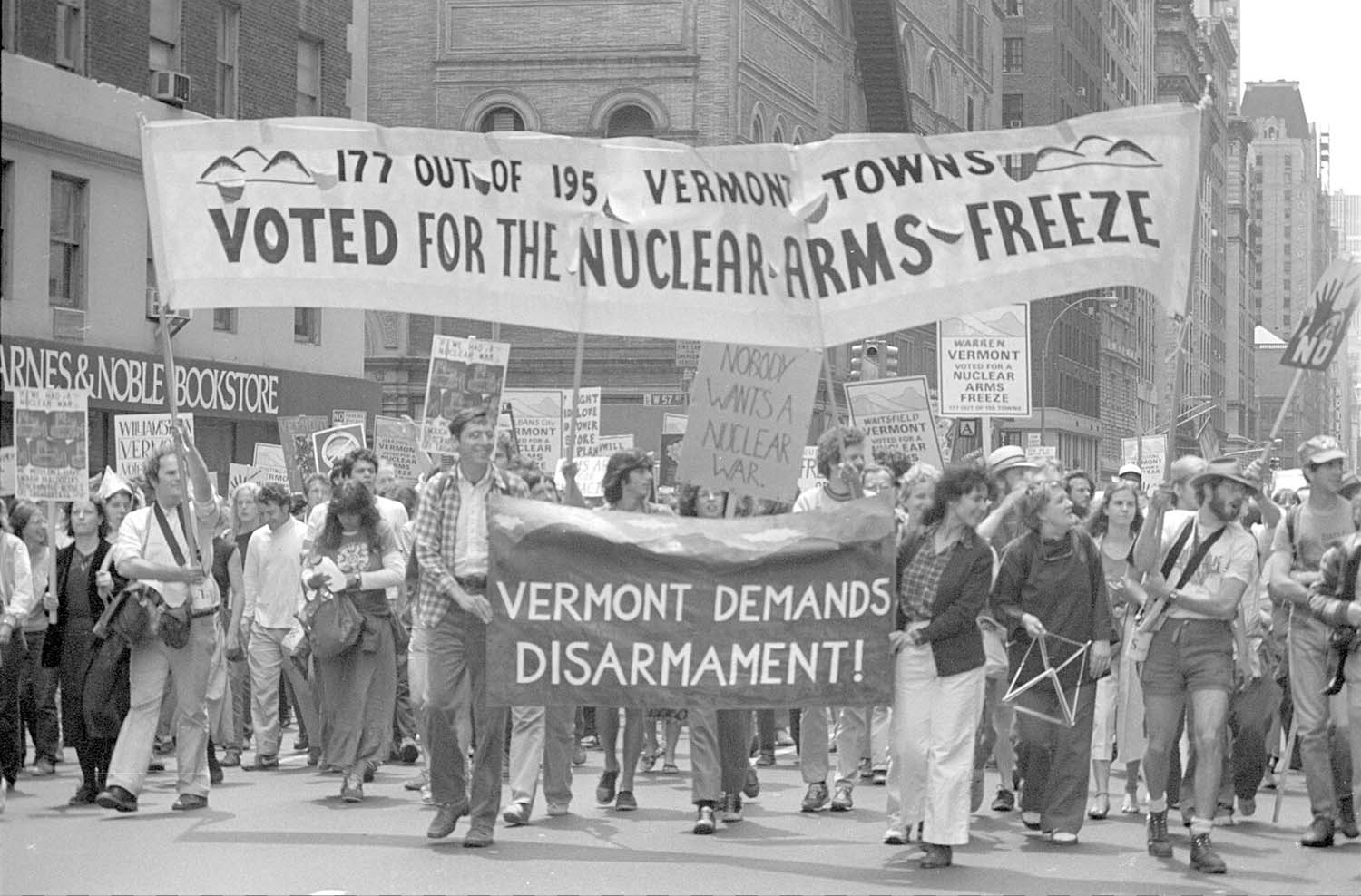
1982
Anti-nuclear campaigns
AFSC played a lead role in the Nuclear Freeze Campaign, a nationwide movement that demanded an to end to nuclear weapons. The movement mobilized millions and moved government officials, including President Ronald Reagan, to call for arms control.
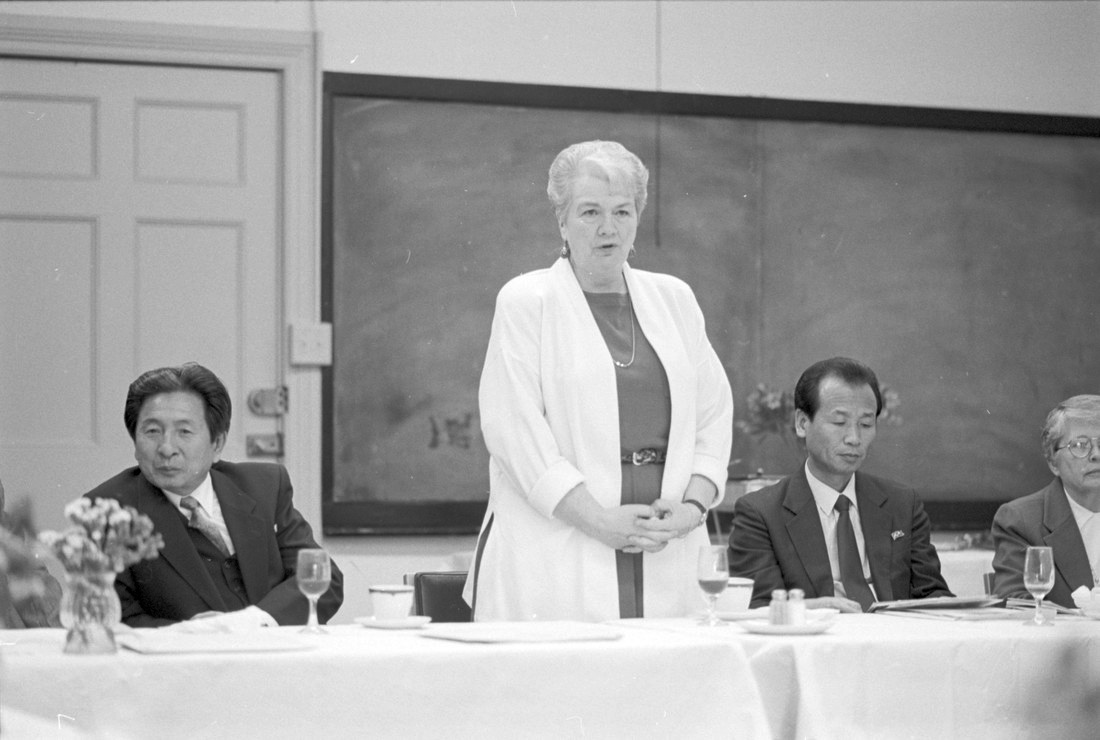
1989
Convening peacebuilders
Our Dialogue and Exchange Program launched, bringing together Global South leaders—from the grassroots, civil society, and government—to share insights and collectively solve problems. Since then, hundreds have participated to address election violence, climate and conflict, and more.
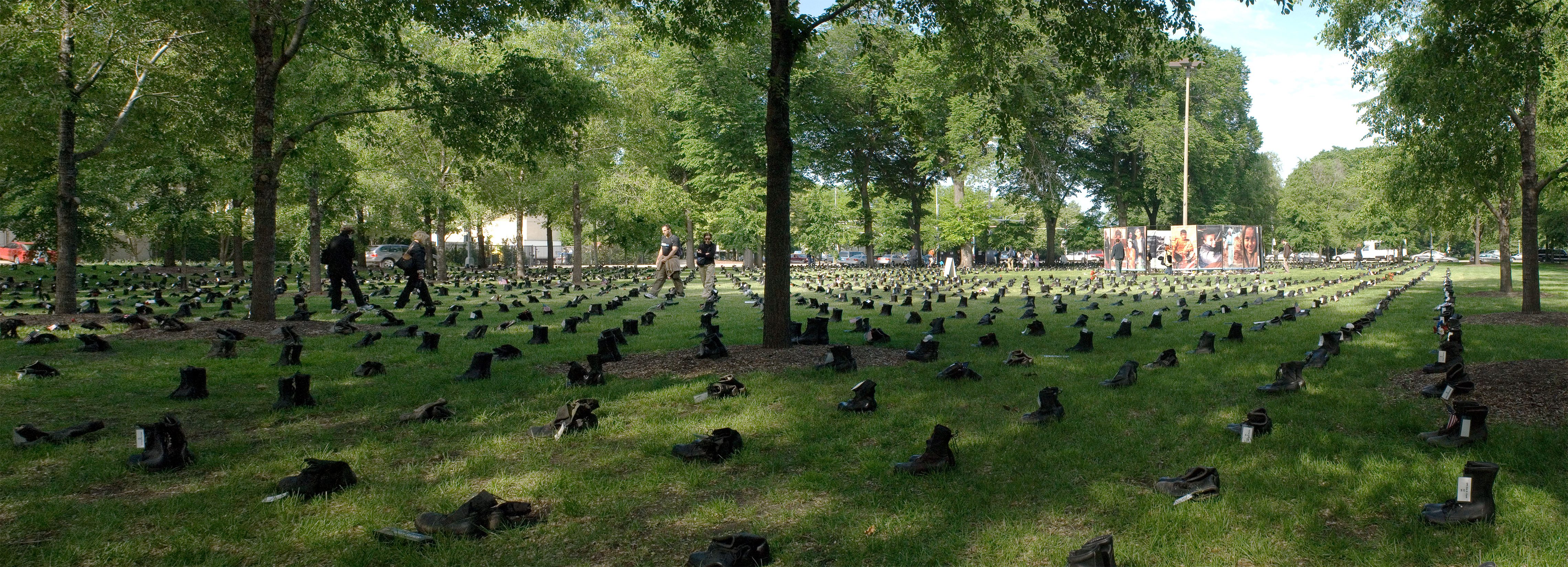
2004
Showing the human cost of war
AFSC launched “Eyes Wide Open,” a traveling exhibit that featured one pair of empty boots for every U.S. military member killed in the Iraq and Afghanistan wars. Millions of people across the U.S. came to look, grieve, and think.
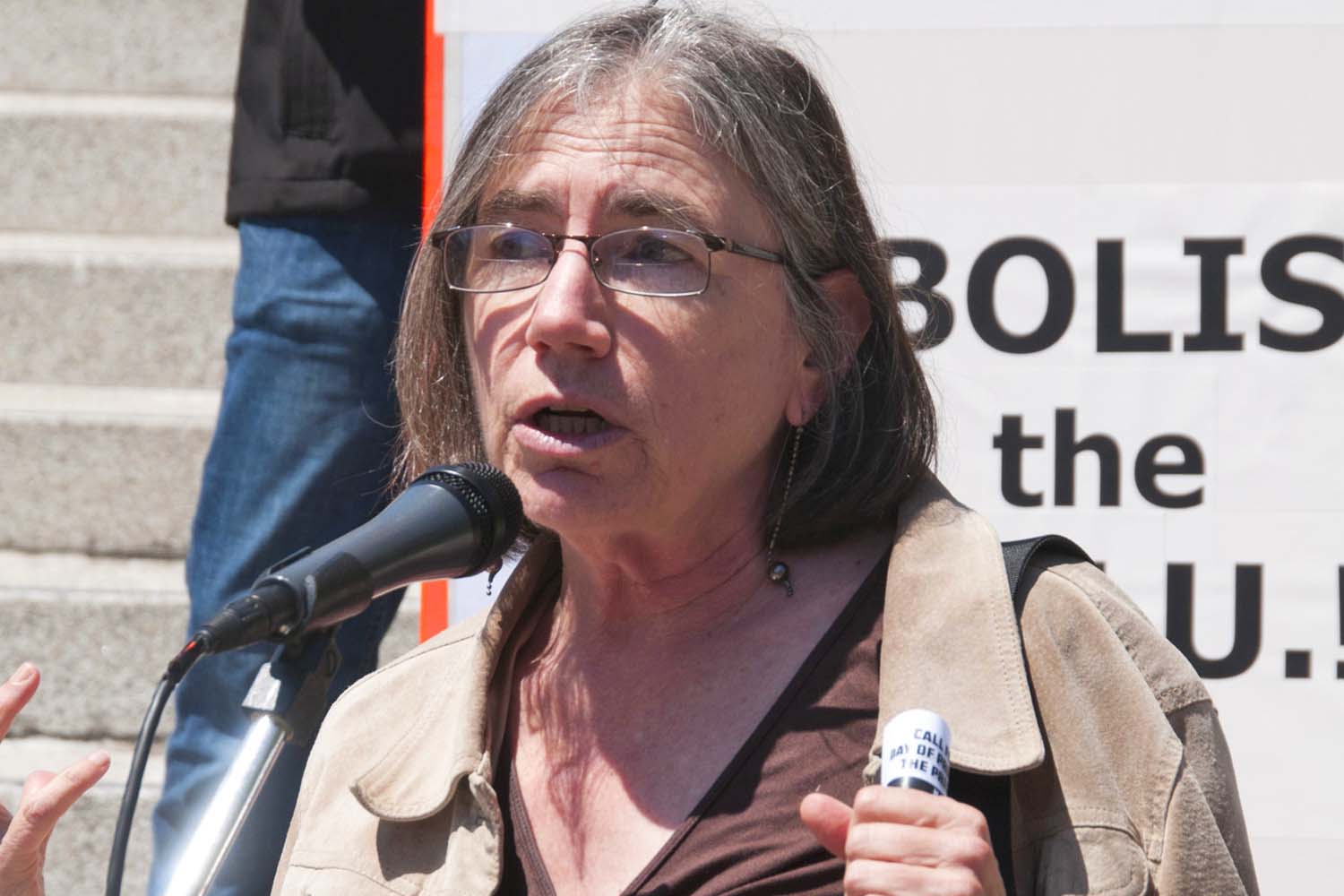
2013
Opposing solitary confinement
For decades, AFSC has called for an end to solitary confinement. When 30,000 prisoners in California went on a hunger strike to protest solitary confinement, AFSC negotiated on their behalf. The strikes led to improvements at state prisons.
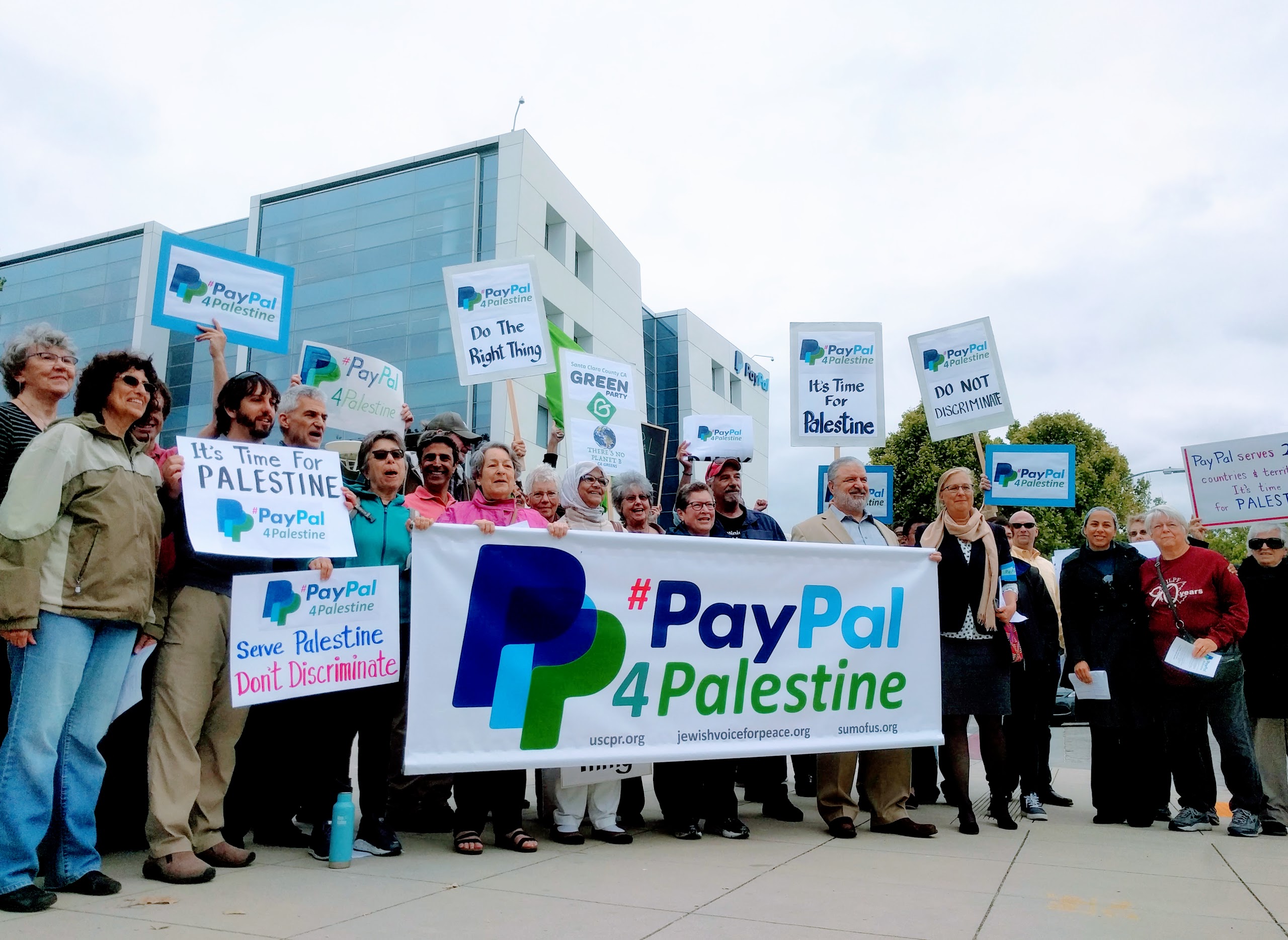
2016
Economic activism
AFSC launches the Investigate project, which exposes corporate complicity in state violence and human rights violations to guide investors toward ethical alternatives. Engaging independent research and shareholder activism, the project has seen investments and company policies change.
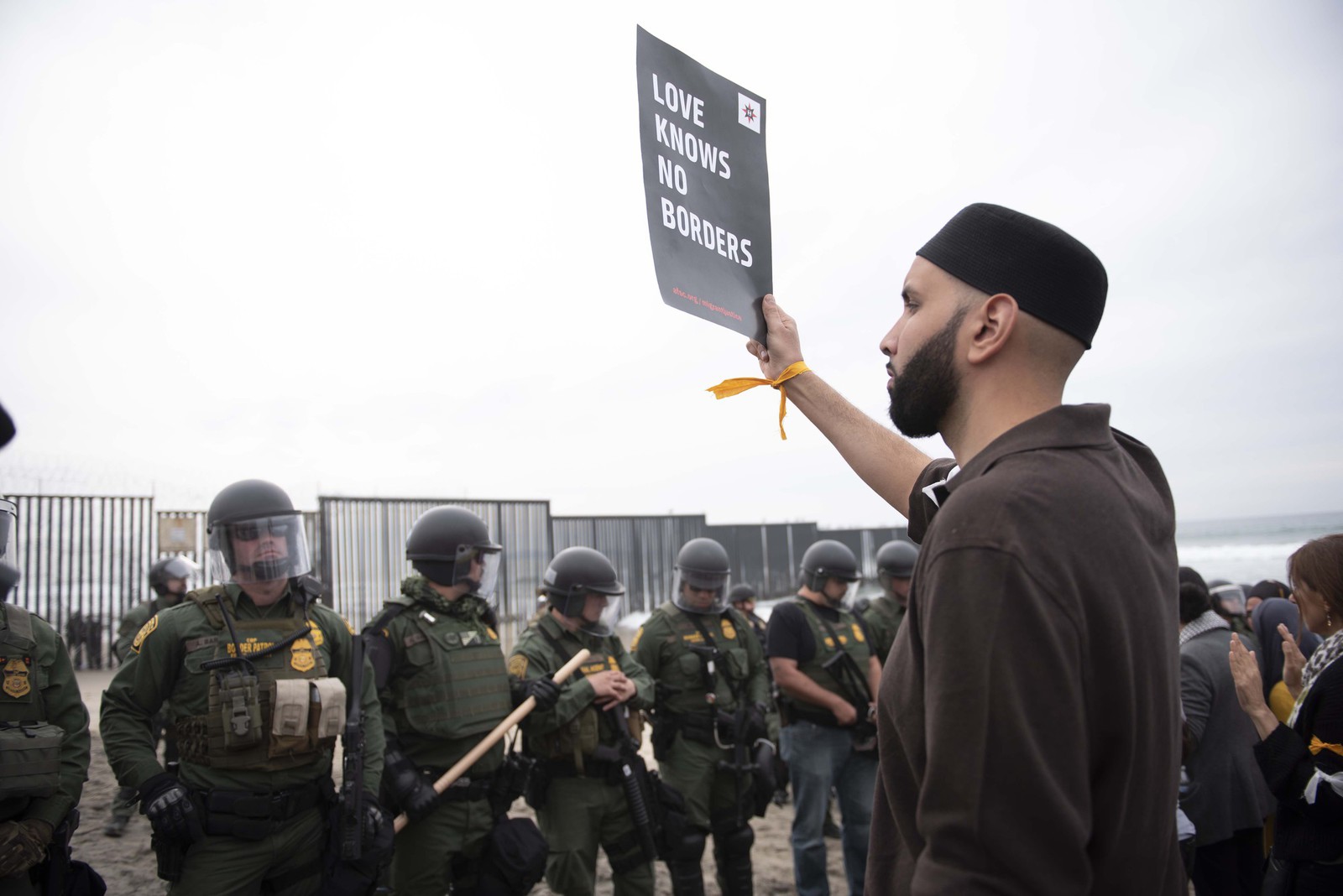
2018
Supporting migrant caravans
As caravans of migrants traveled north from Central America, AFSC provided them with humanitarian support and human rights monitoring. We rallied 400 people to the U.S.-Mexico border, an action named “the most valuable protest of the year” by The Nation.
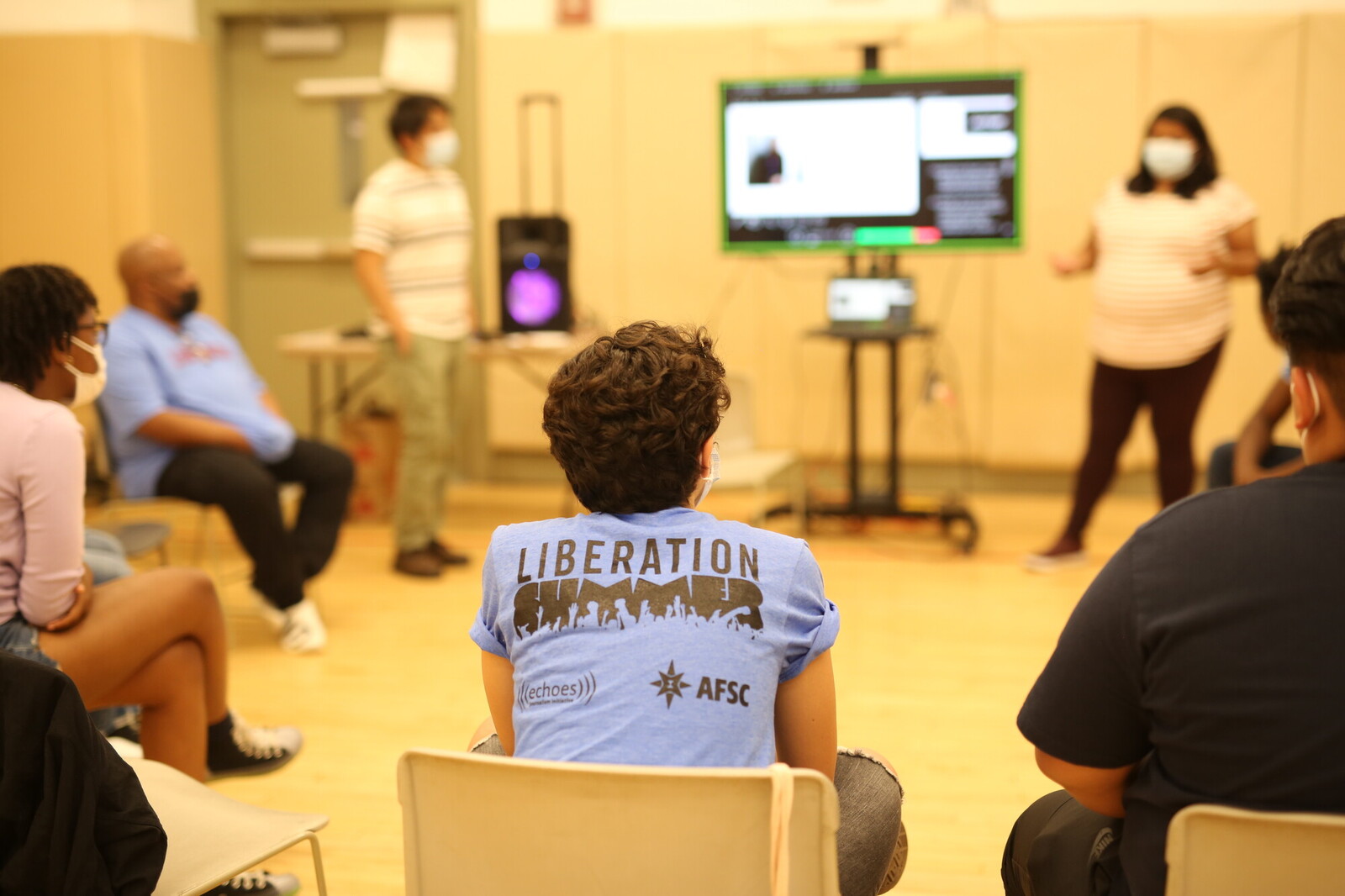
2021
Setting a course toward abolition
Following years of research and community work on prisons and policing, AFSC published “North Star,” which identifies seven guideposts on the path toward the abolition of prisons, jails, detention centers, and all forms of incarceration.
Explore our work by issue
Dive deeper into AFSC's work on immigrant rights, food justice, Palestinian rights, and other key issues throughout our history.
Explore the Archive
Since its establishment in 1929, the archive collection has been a source for records of the organization’s work in some of the most important historical events from around the world.
